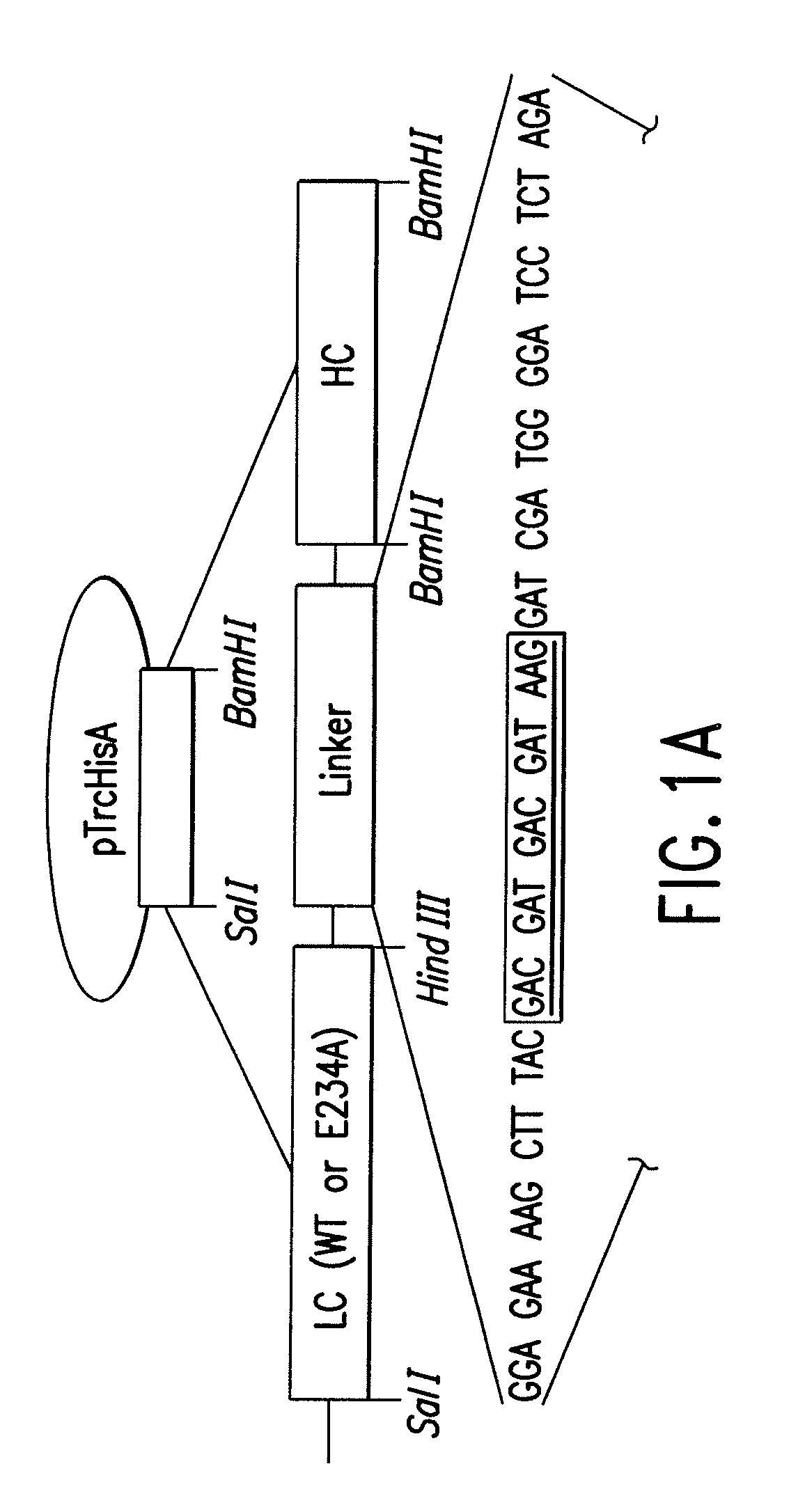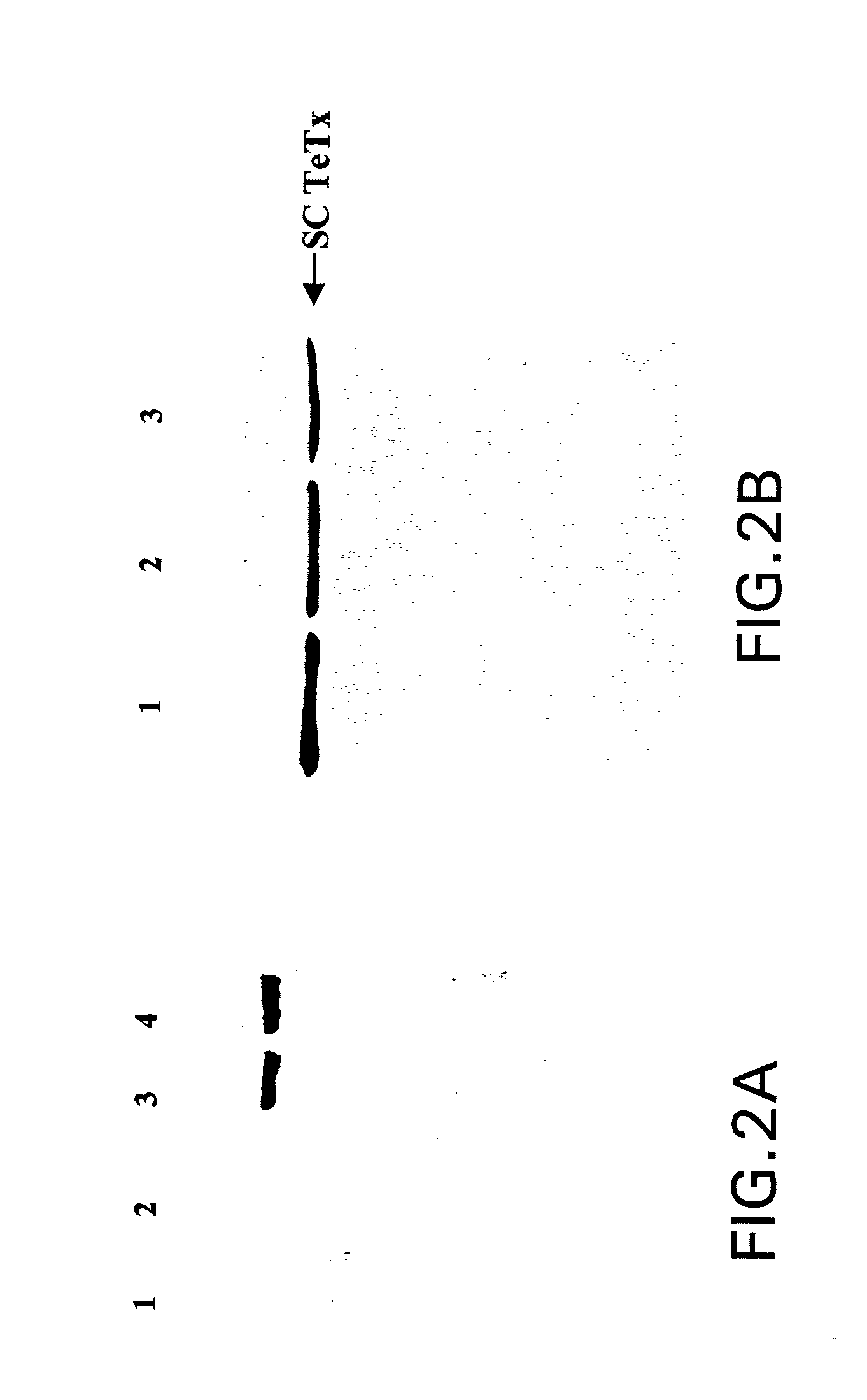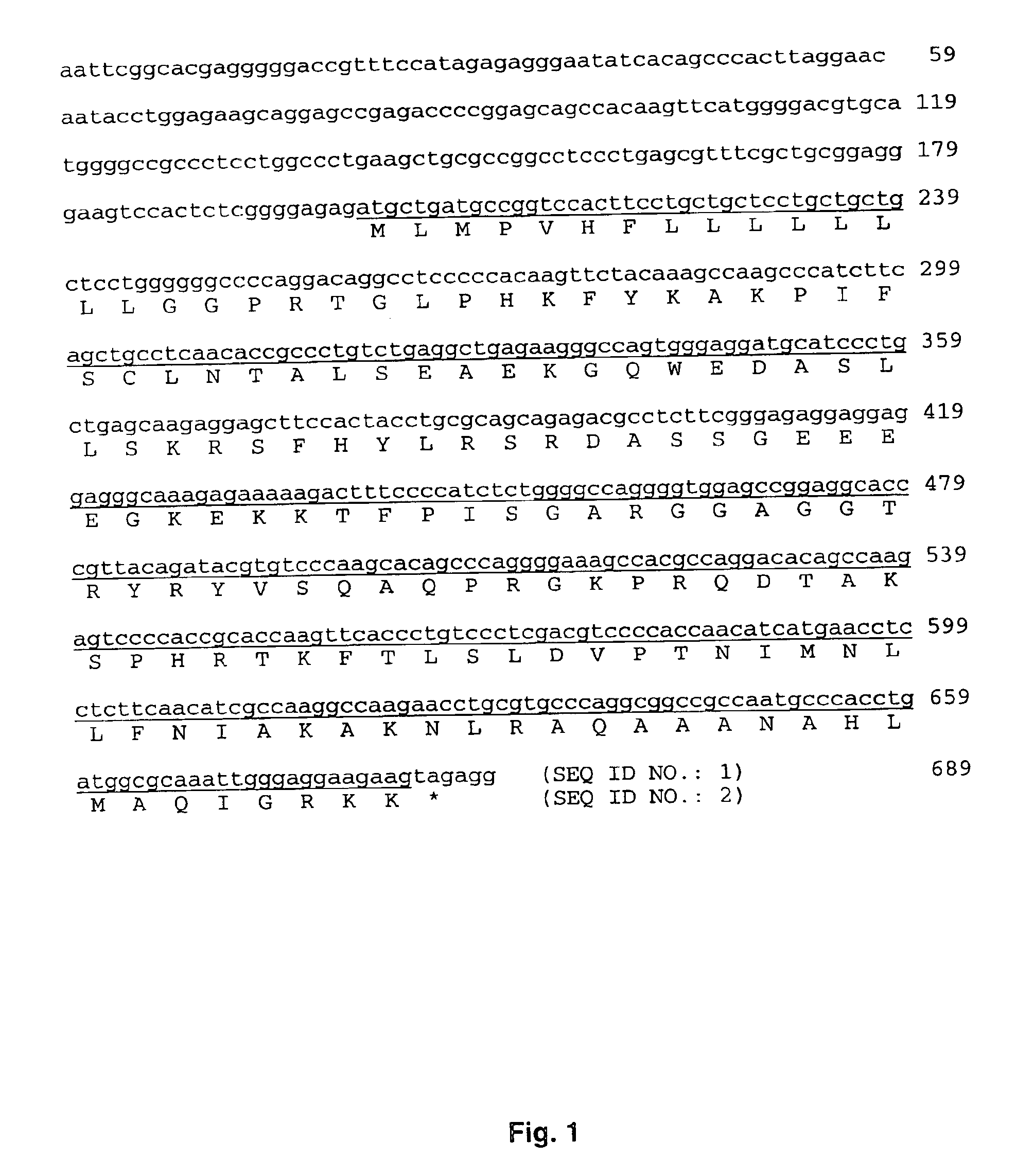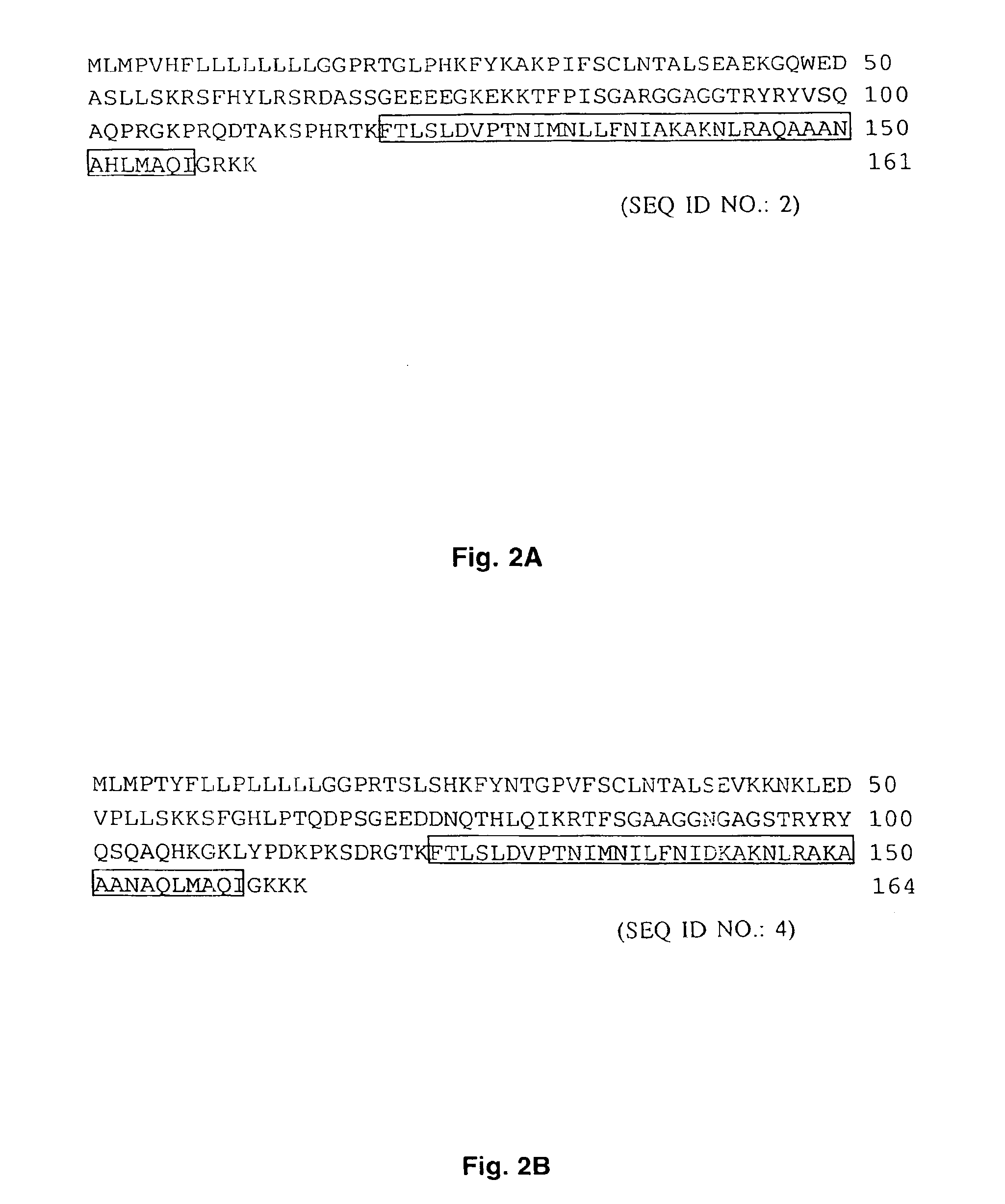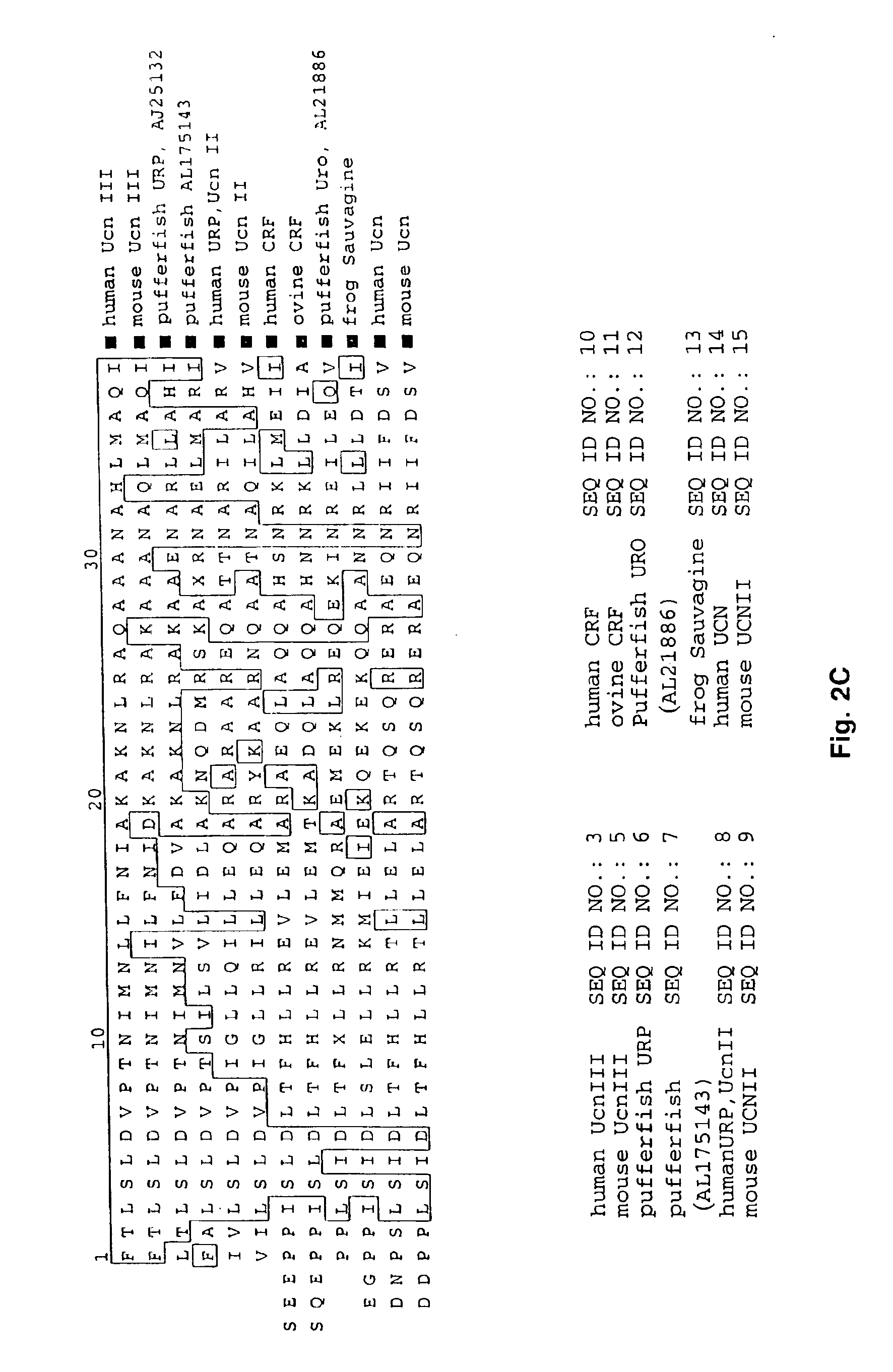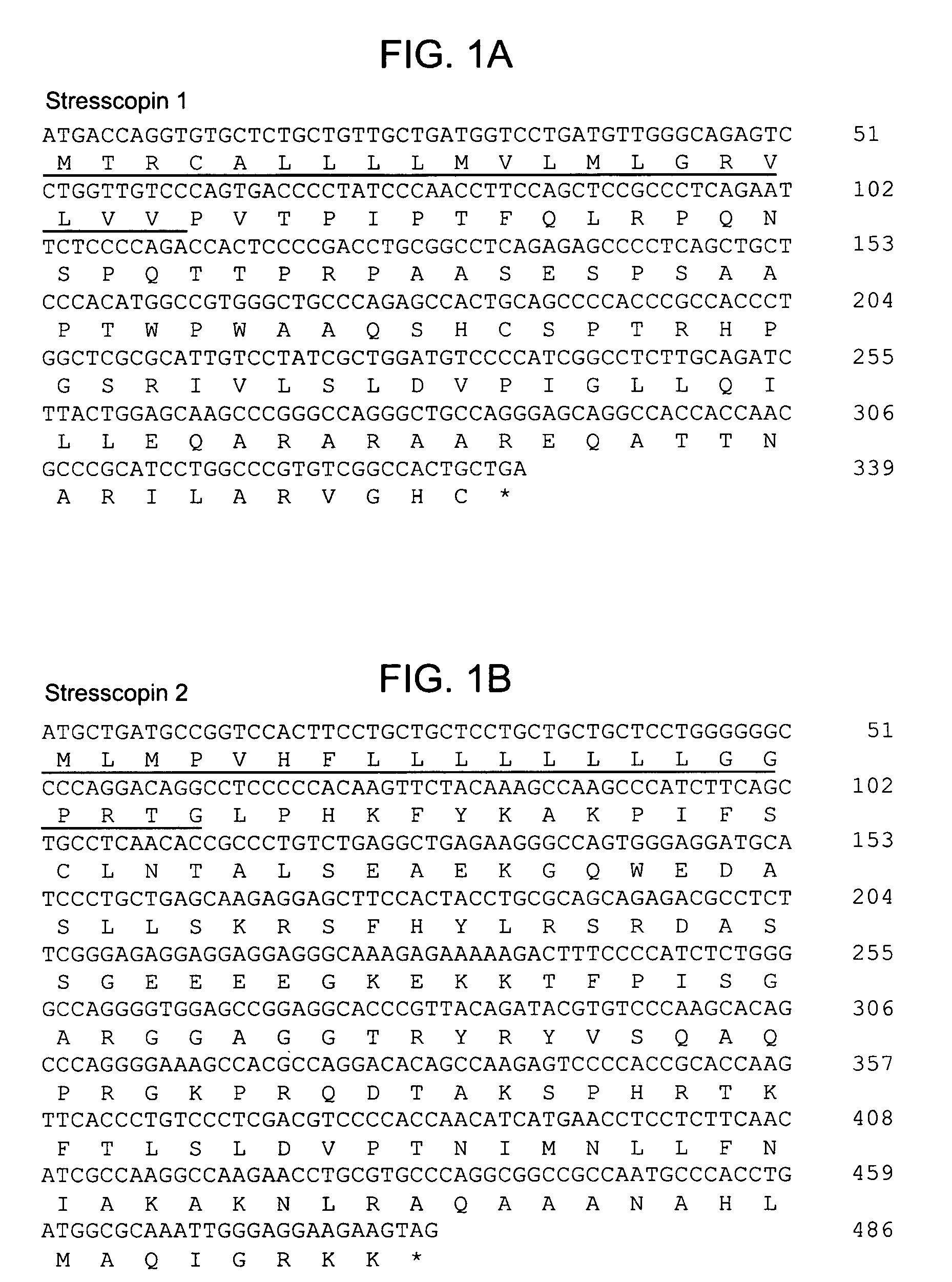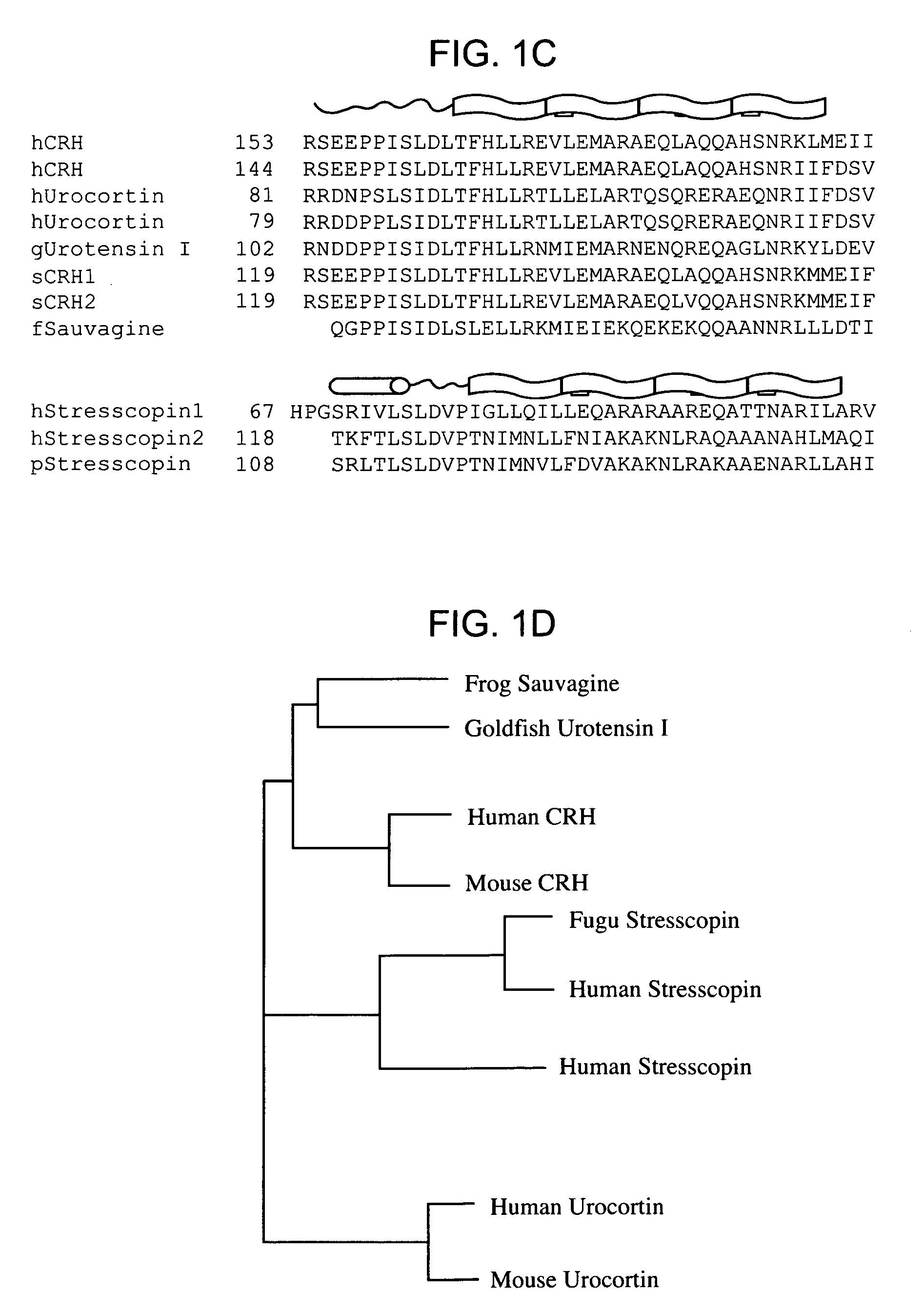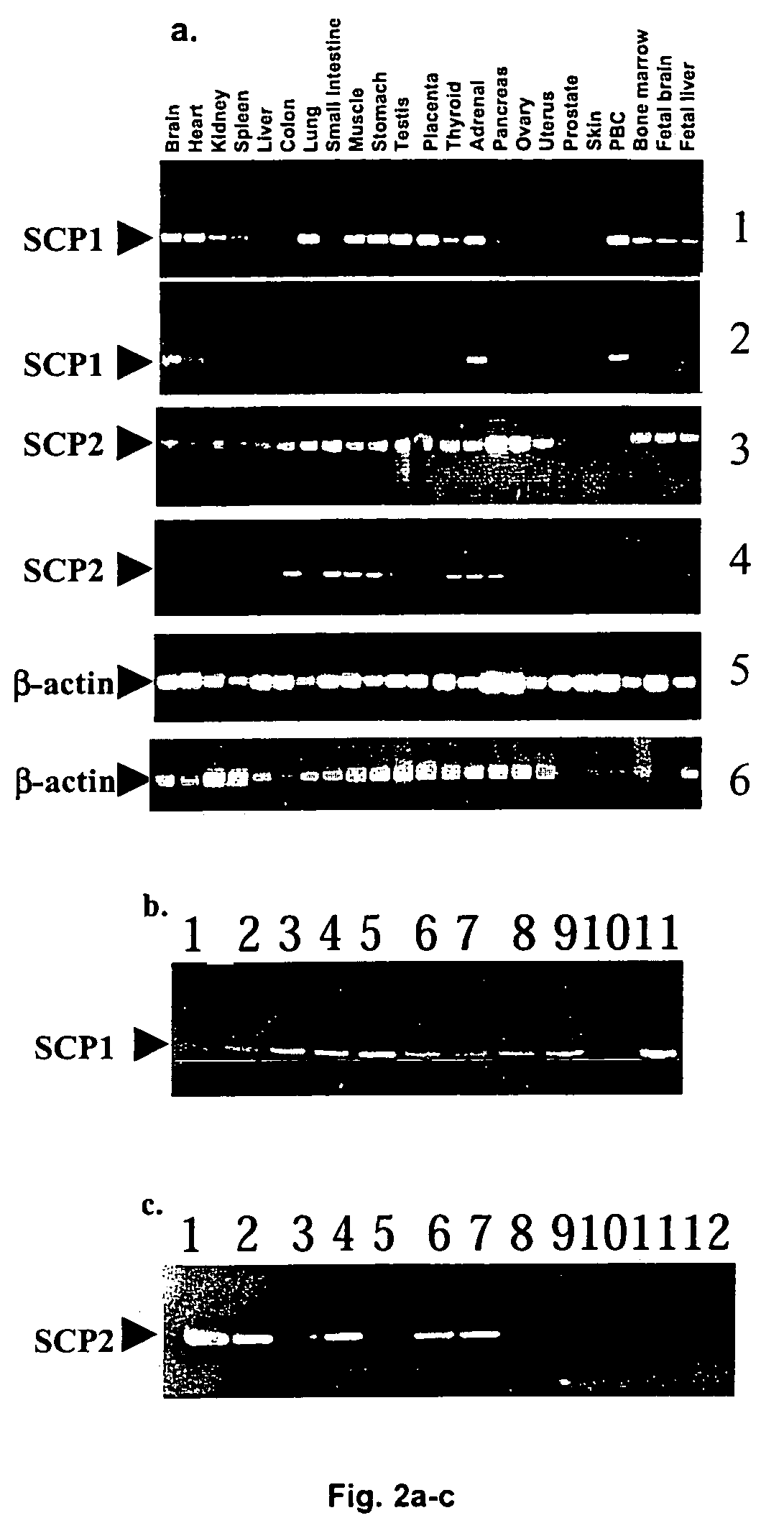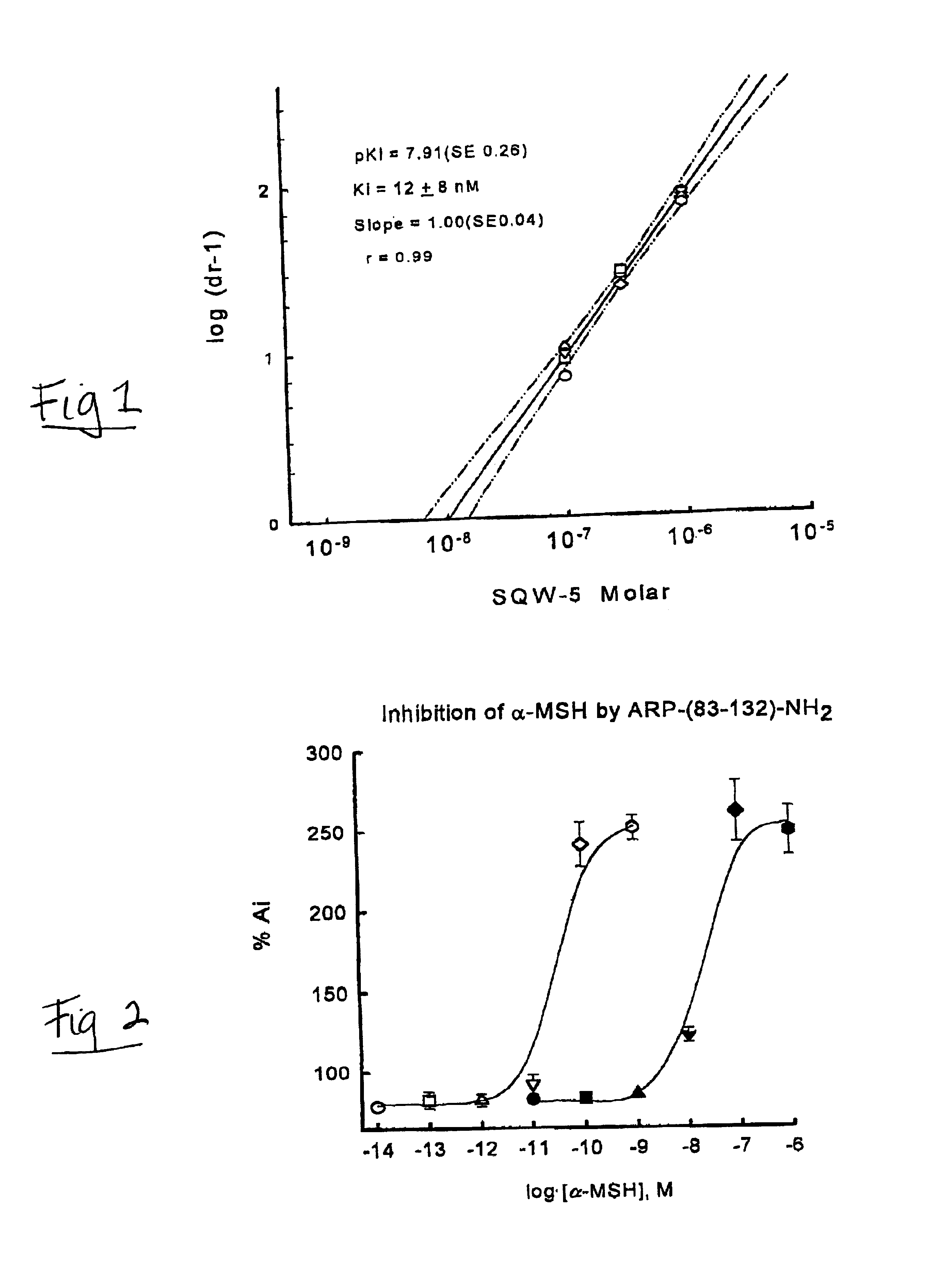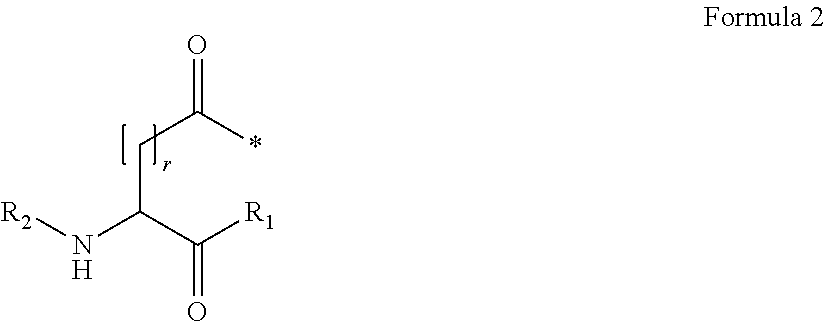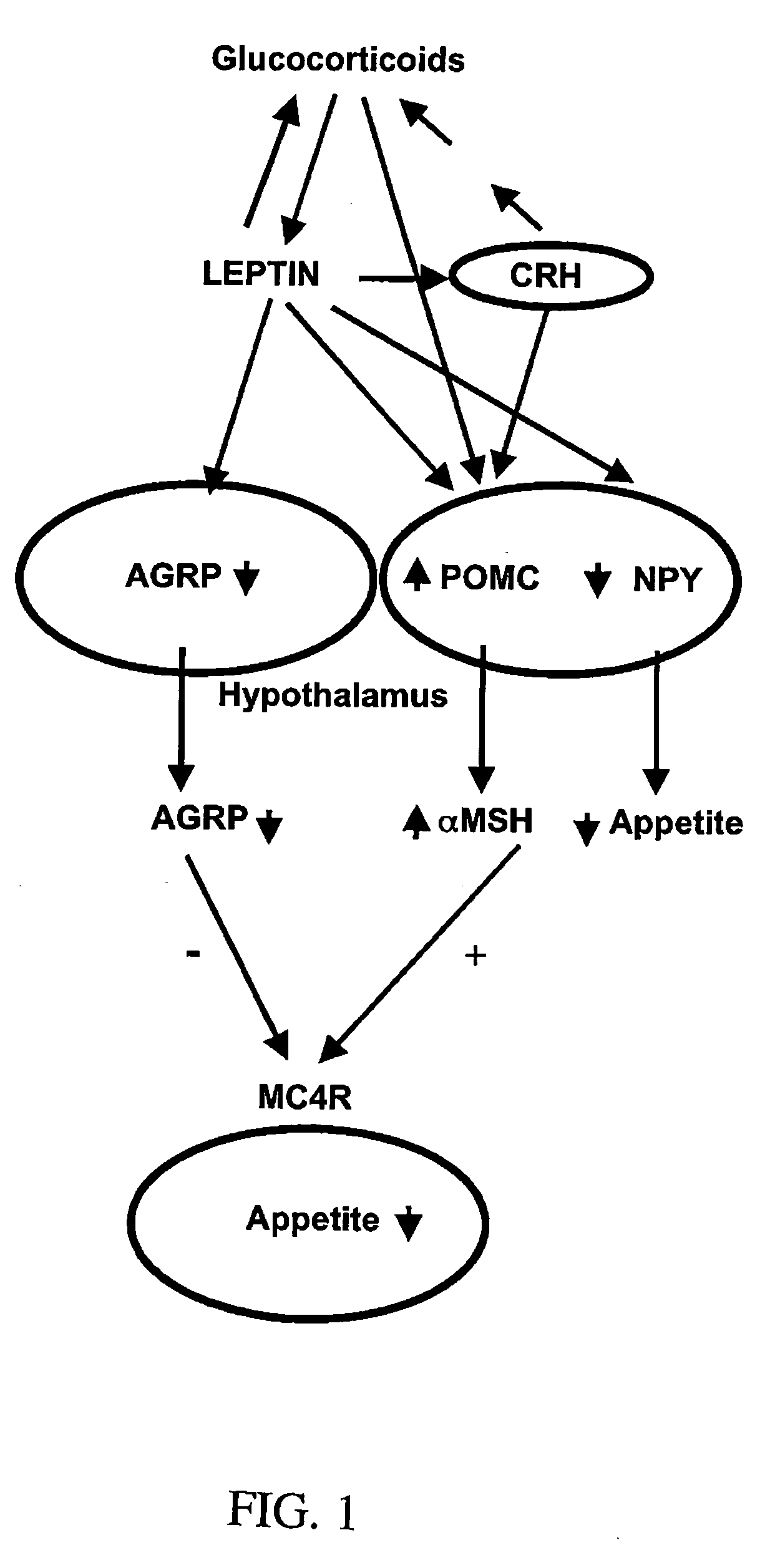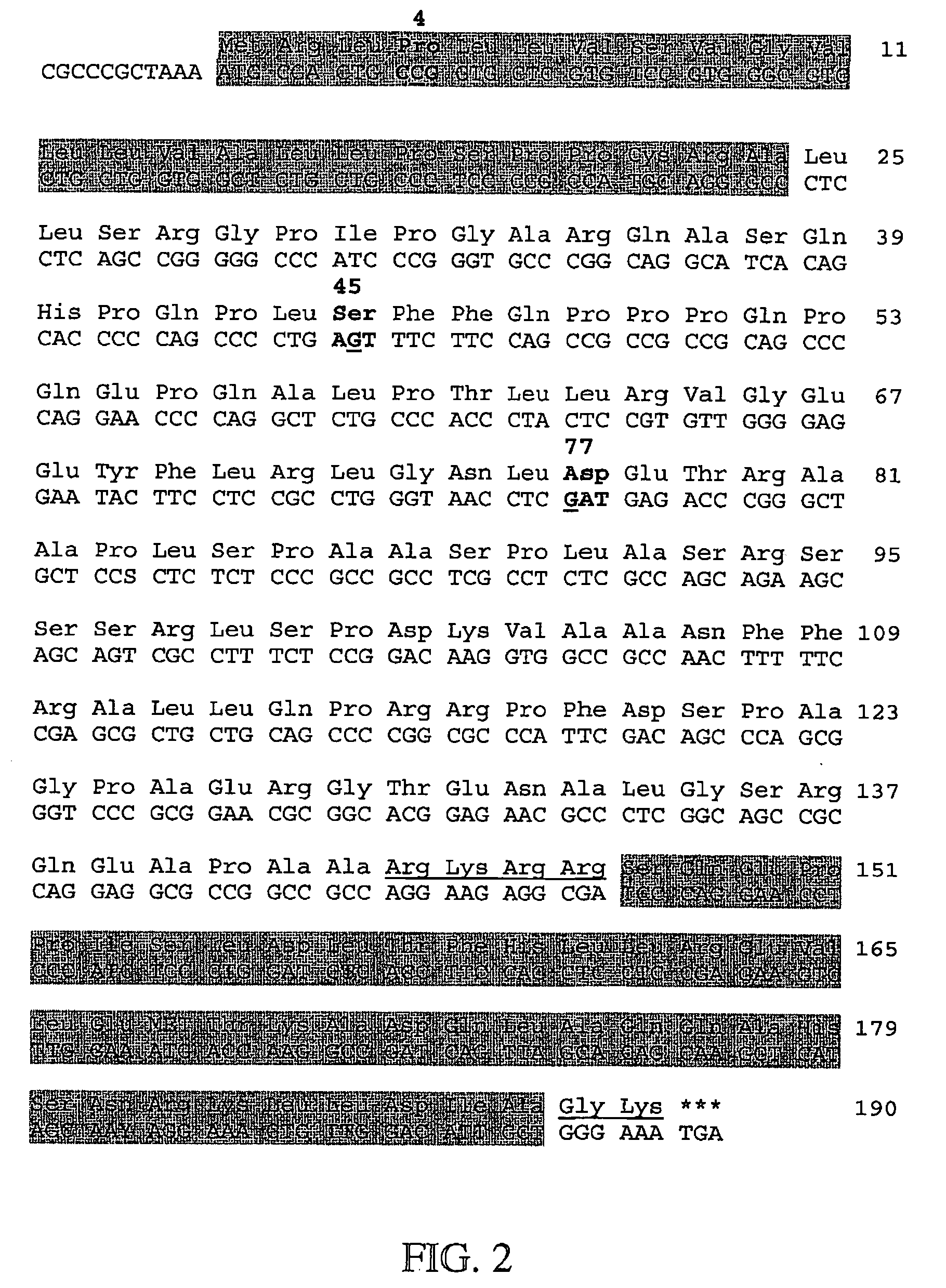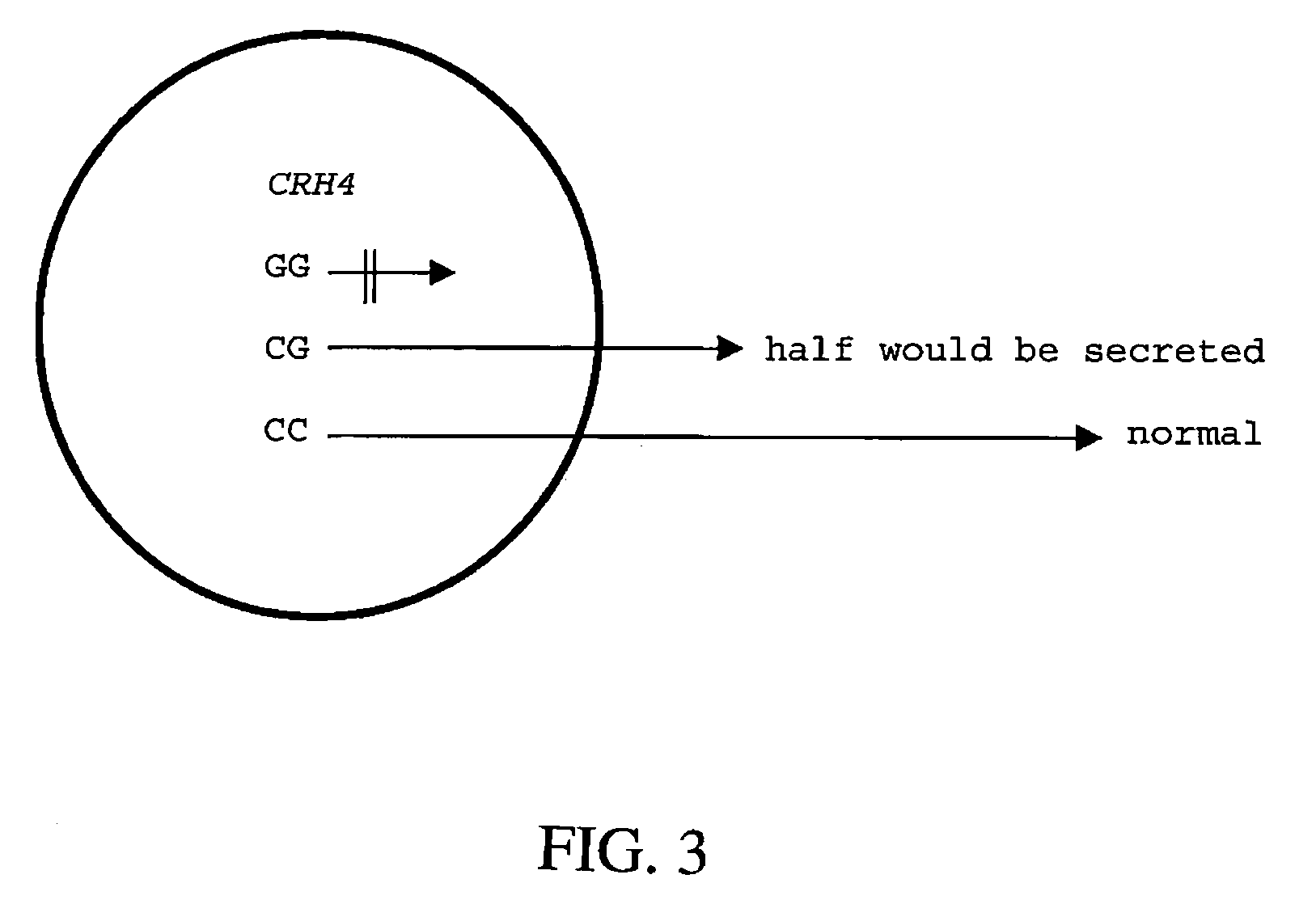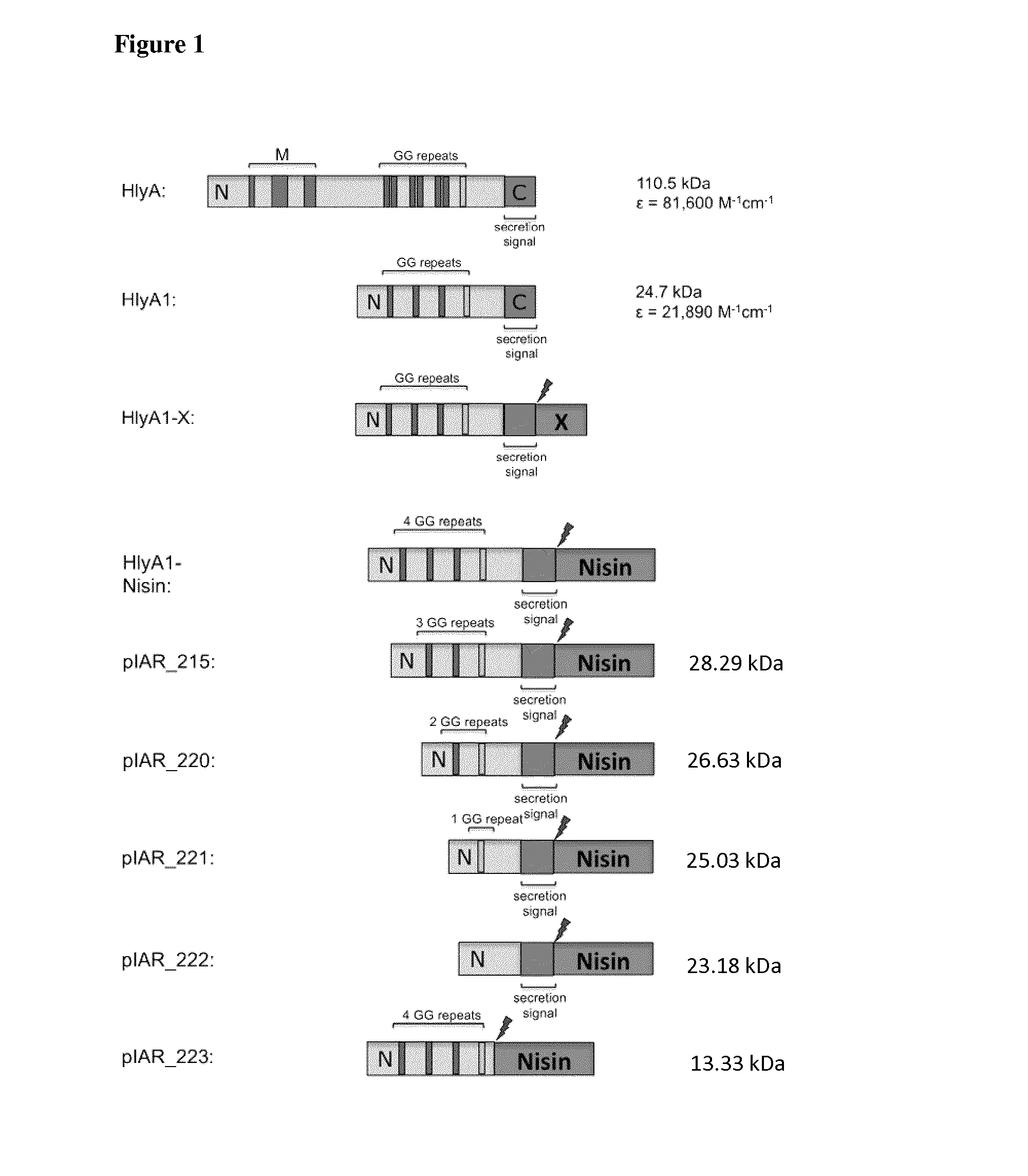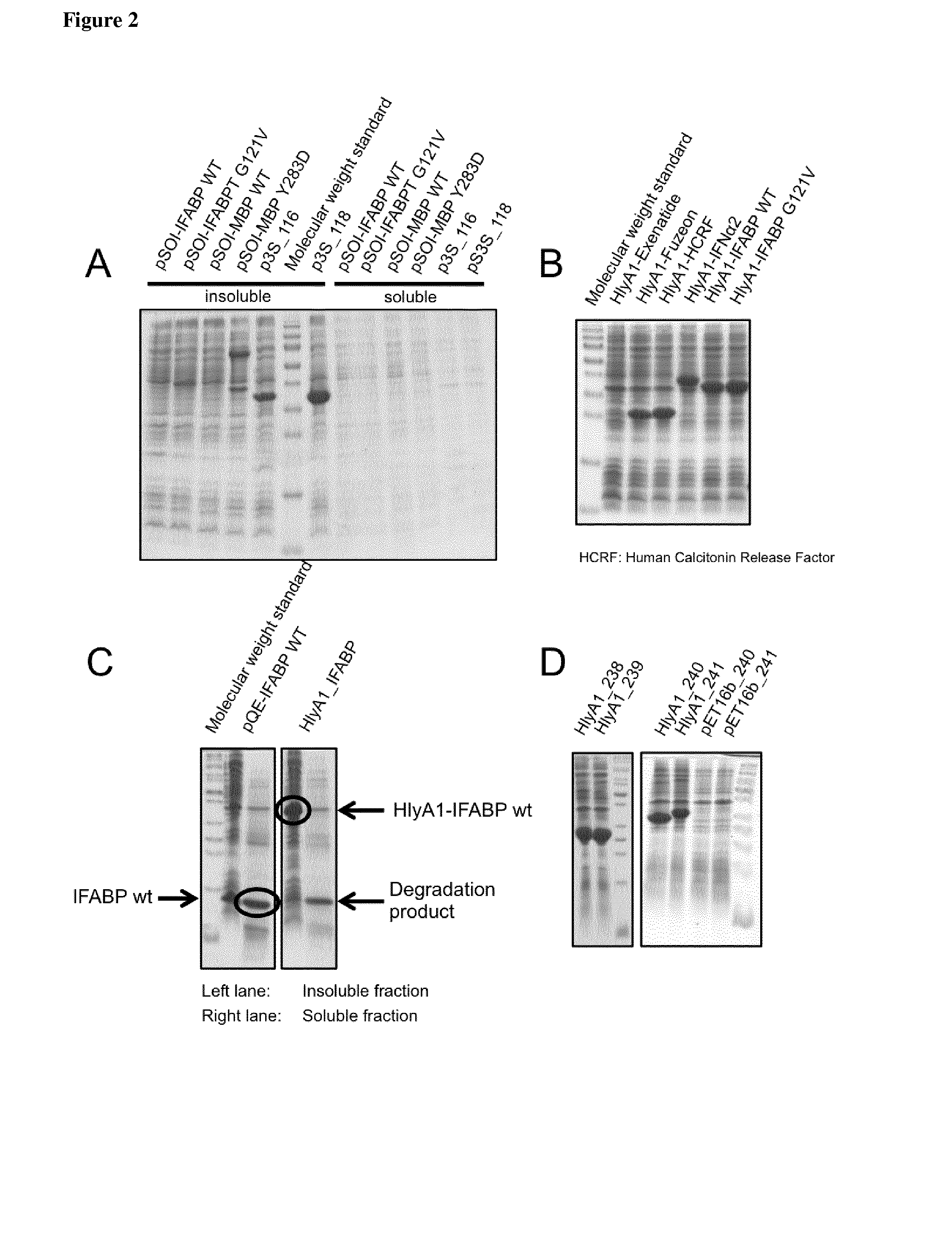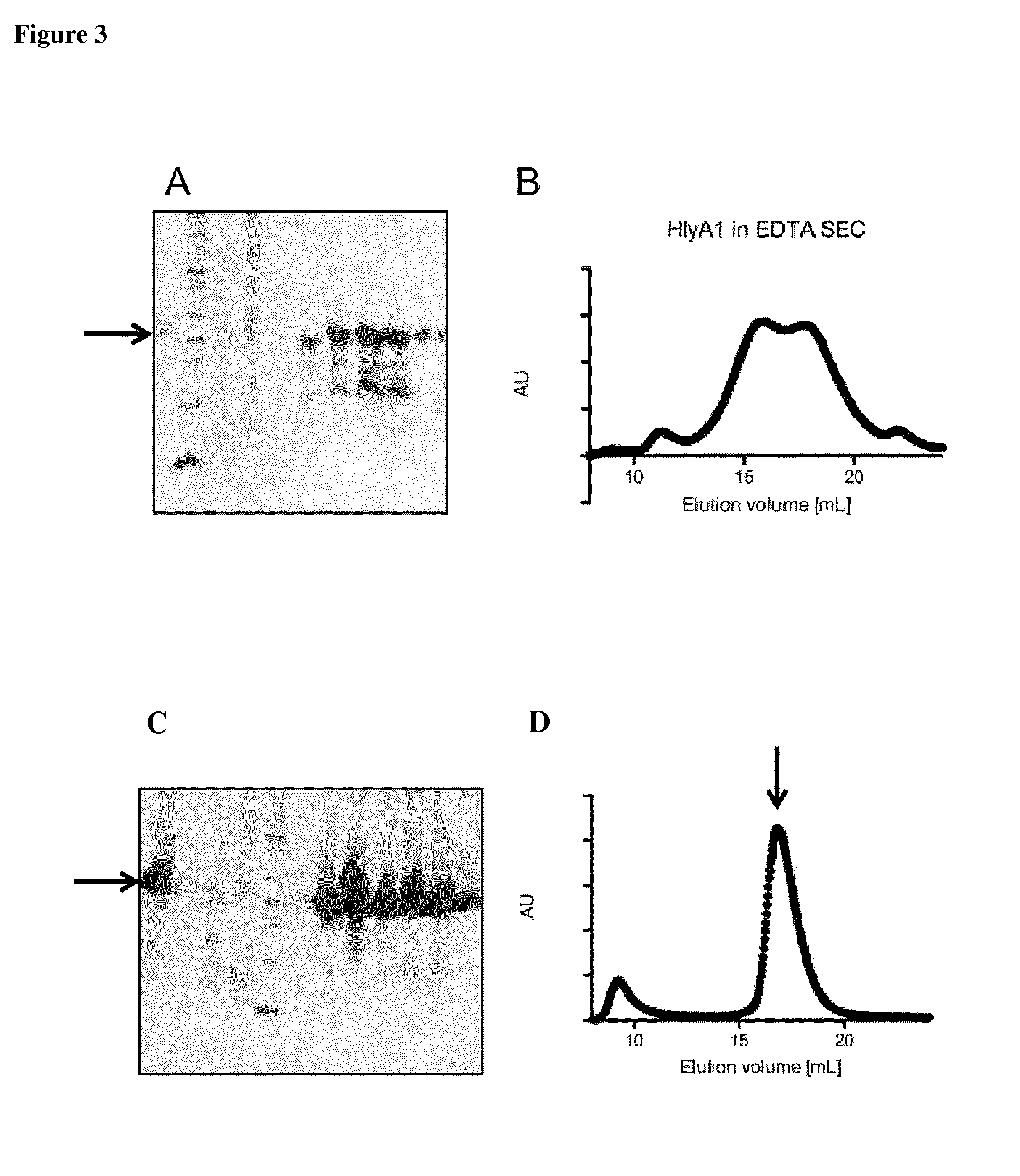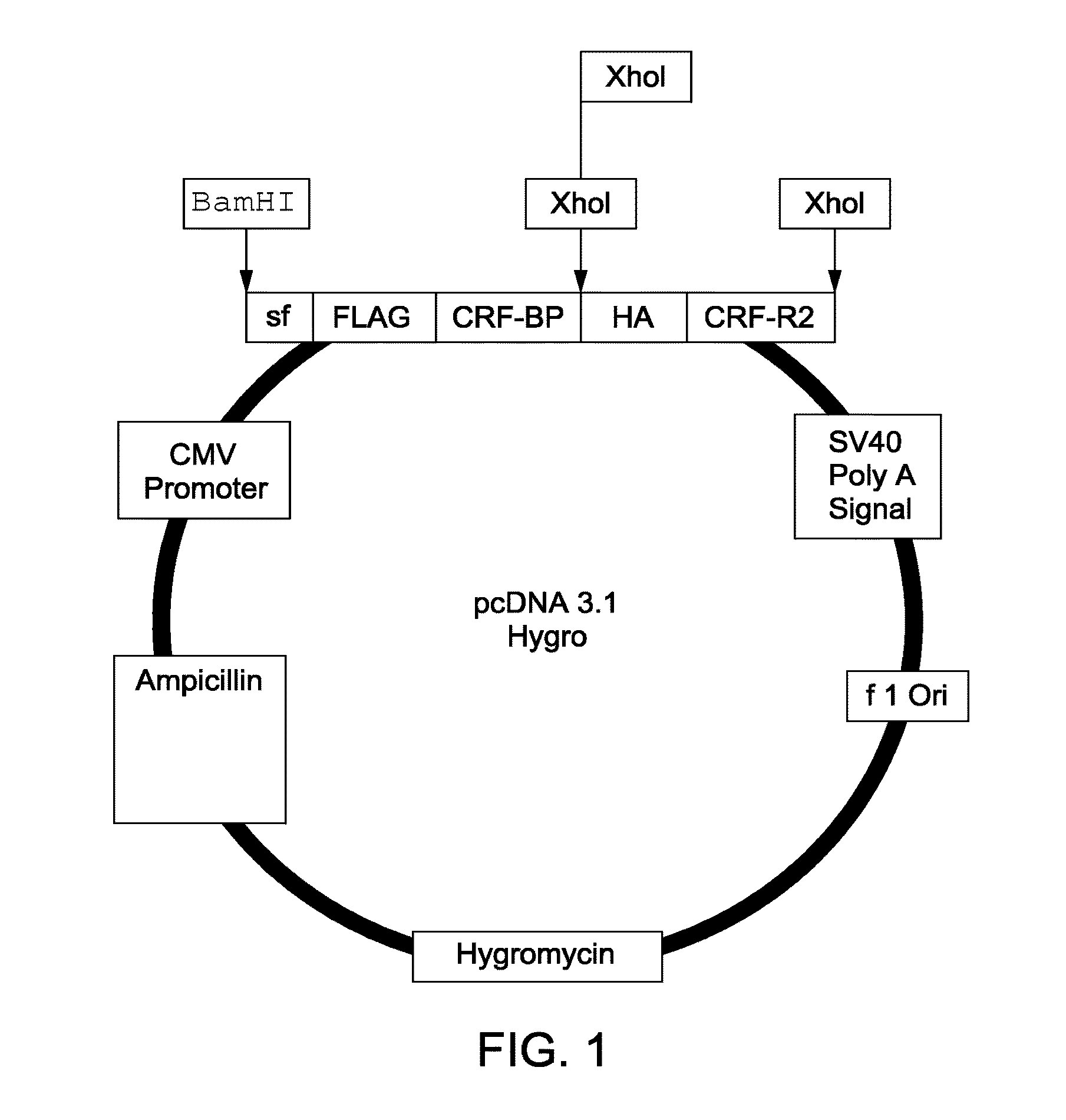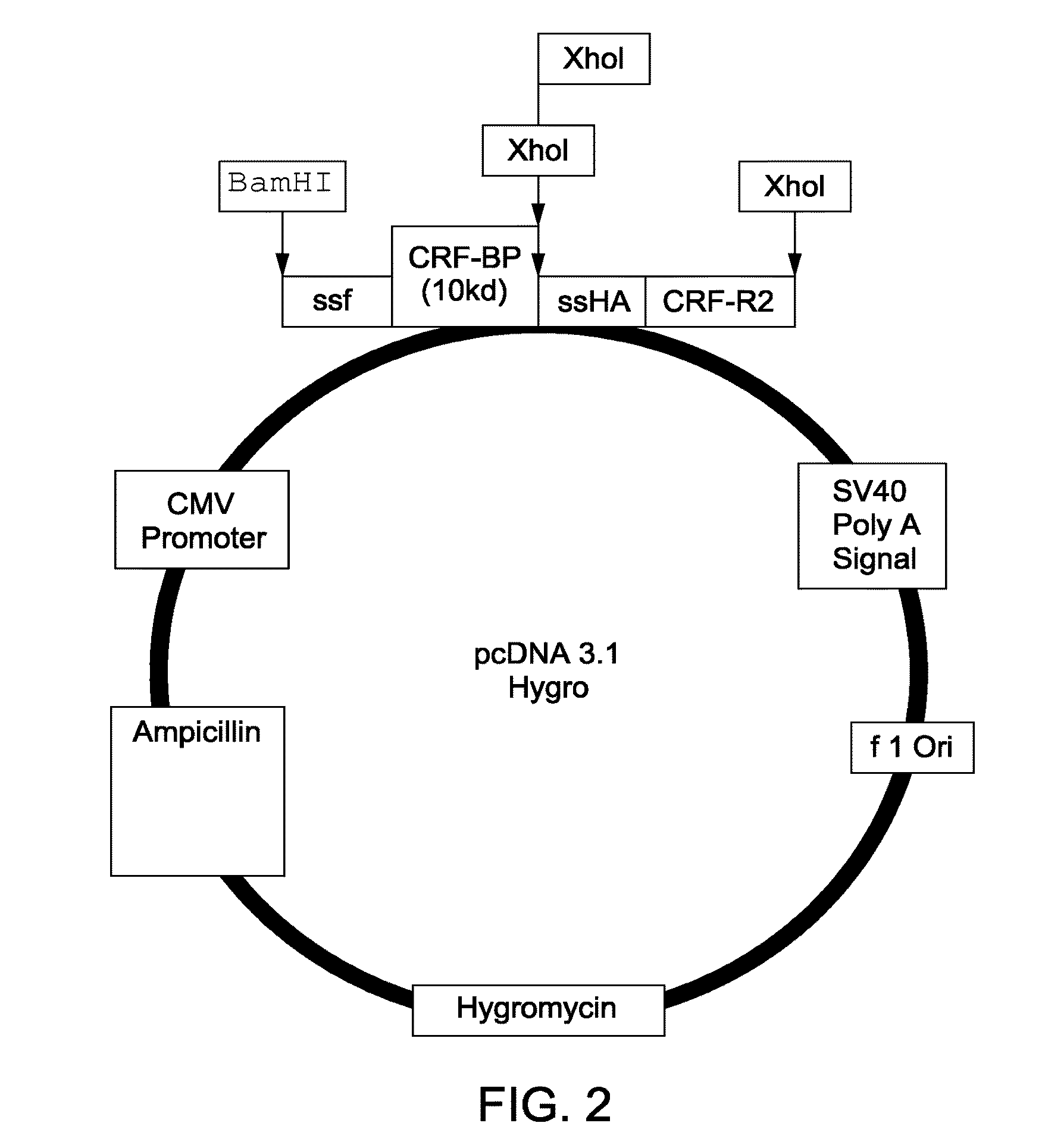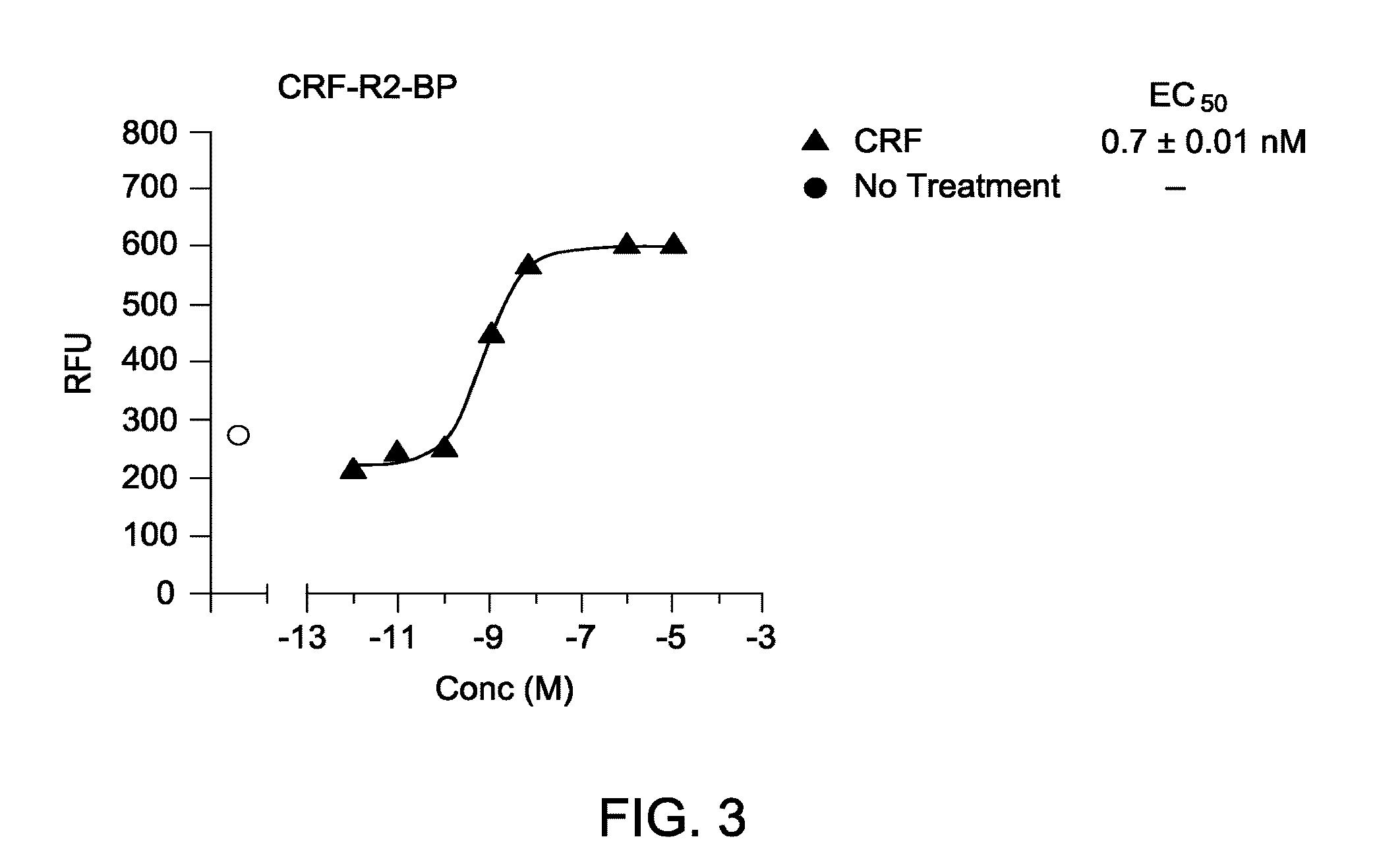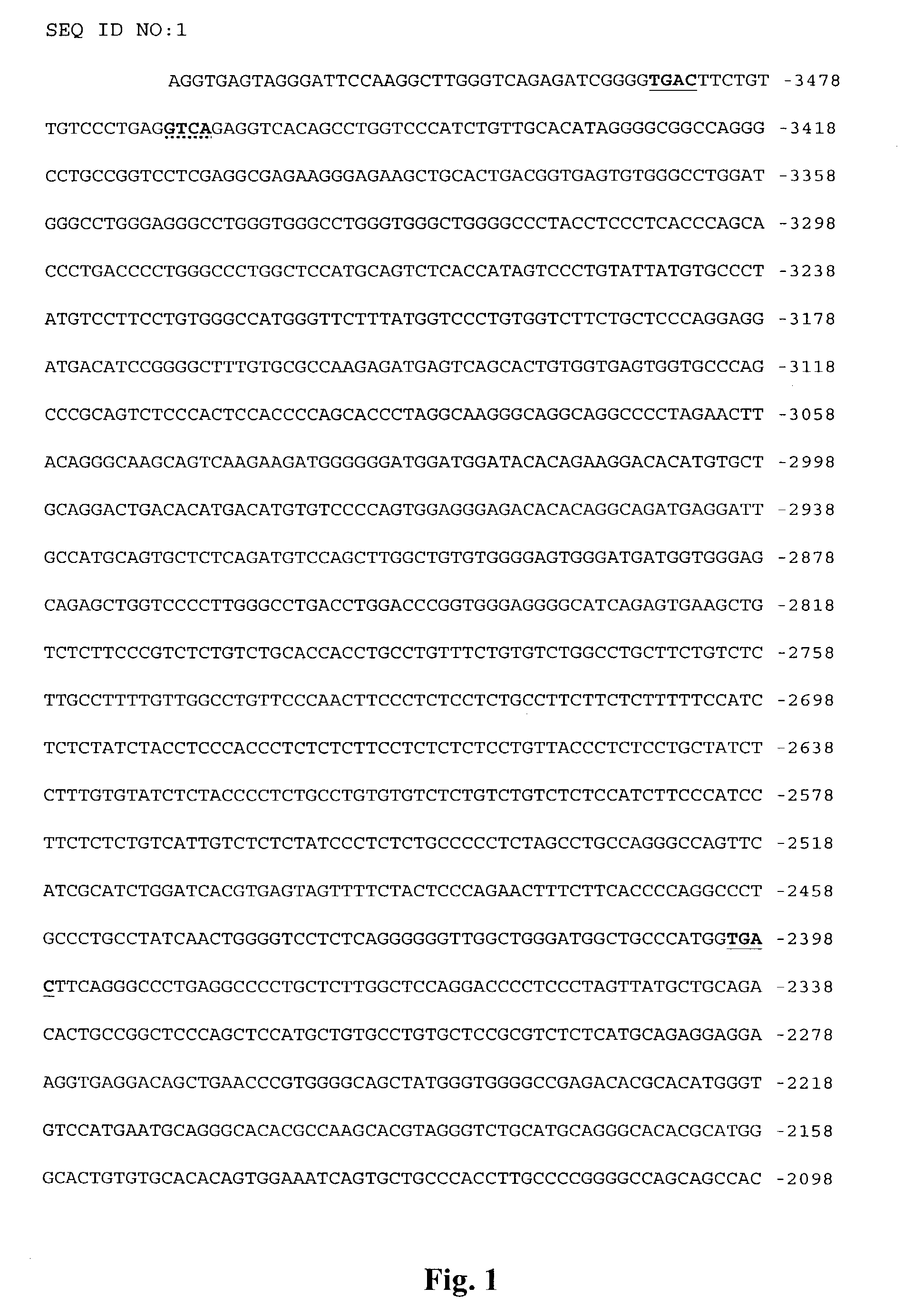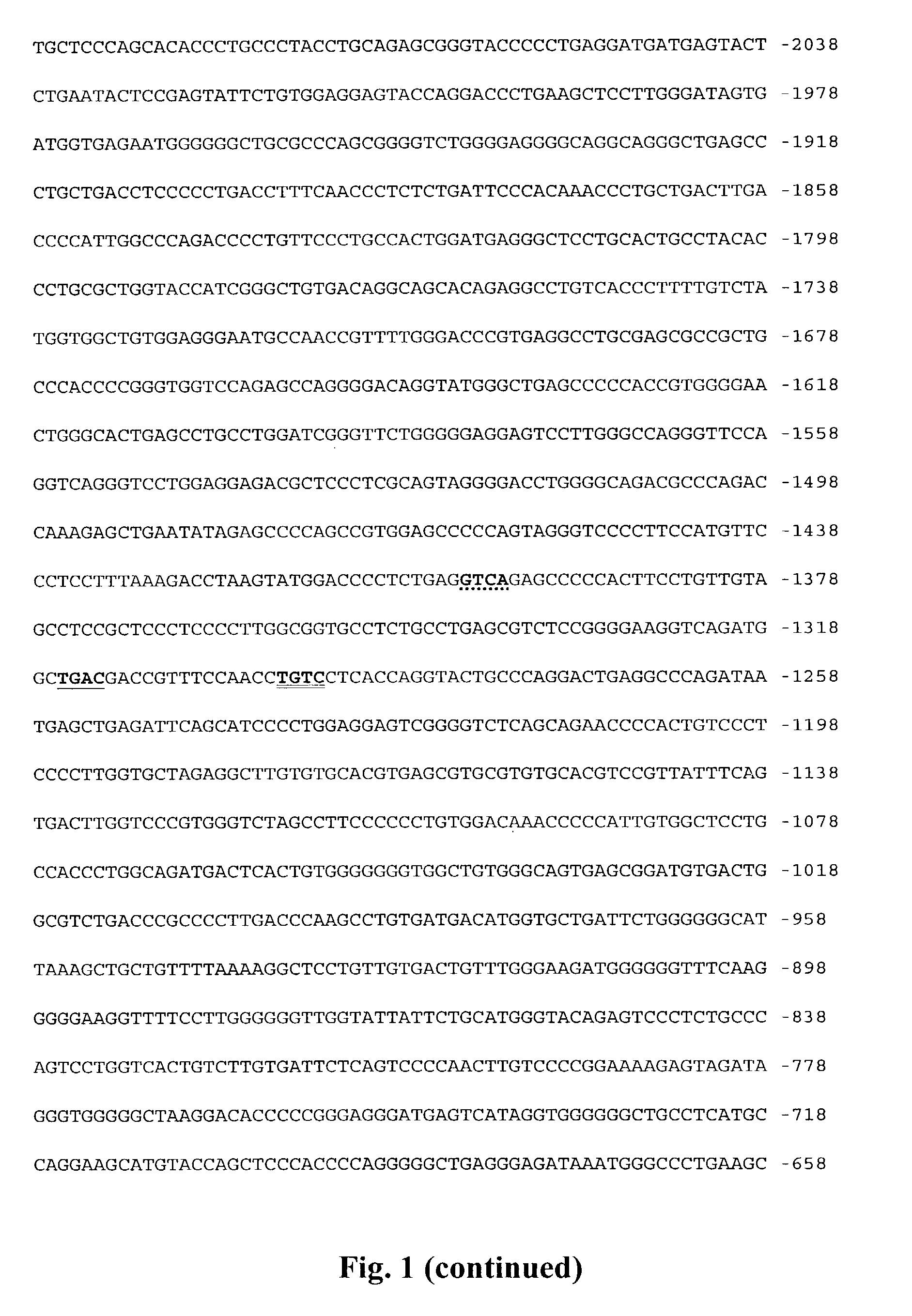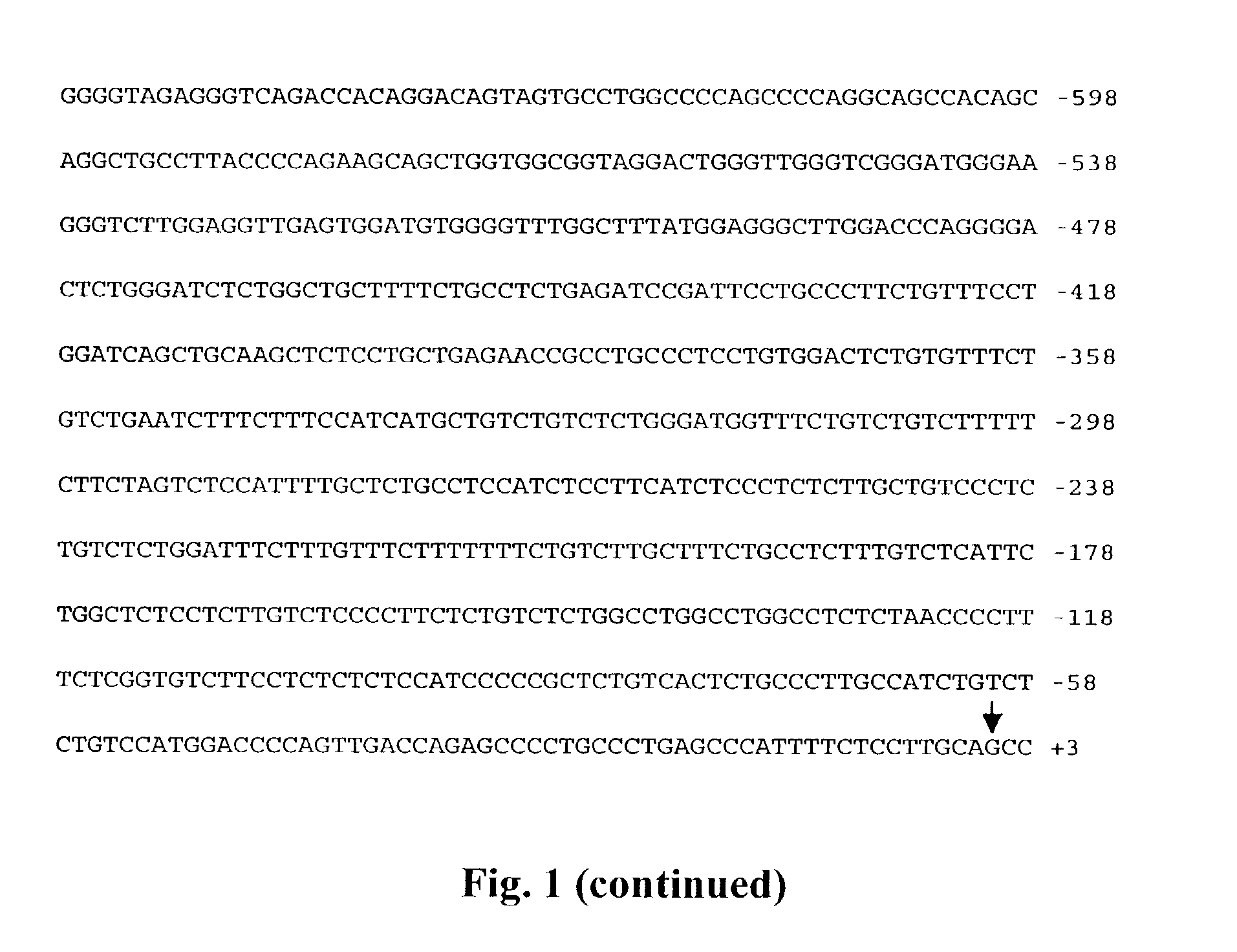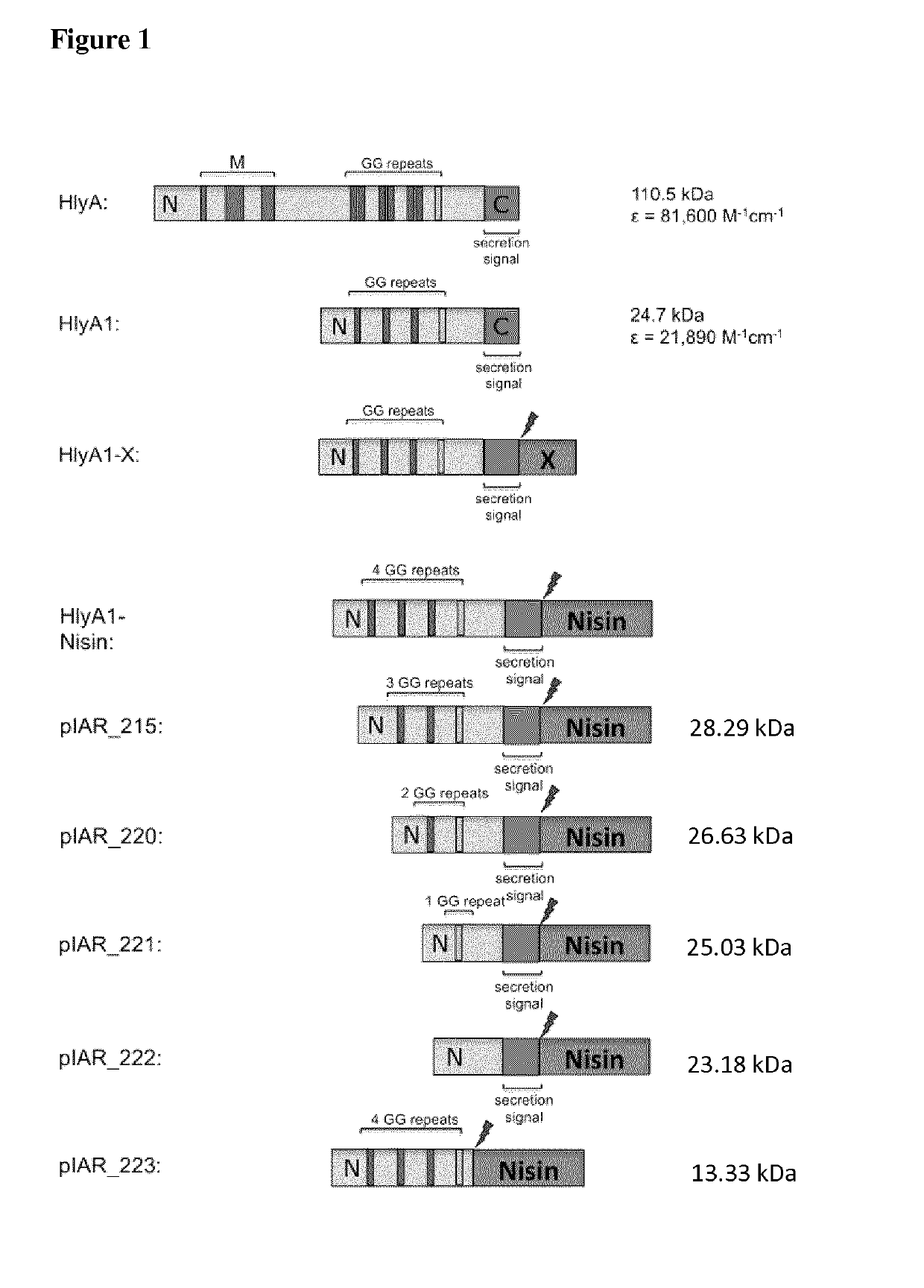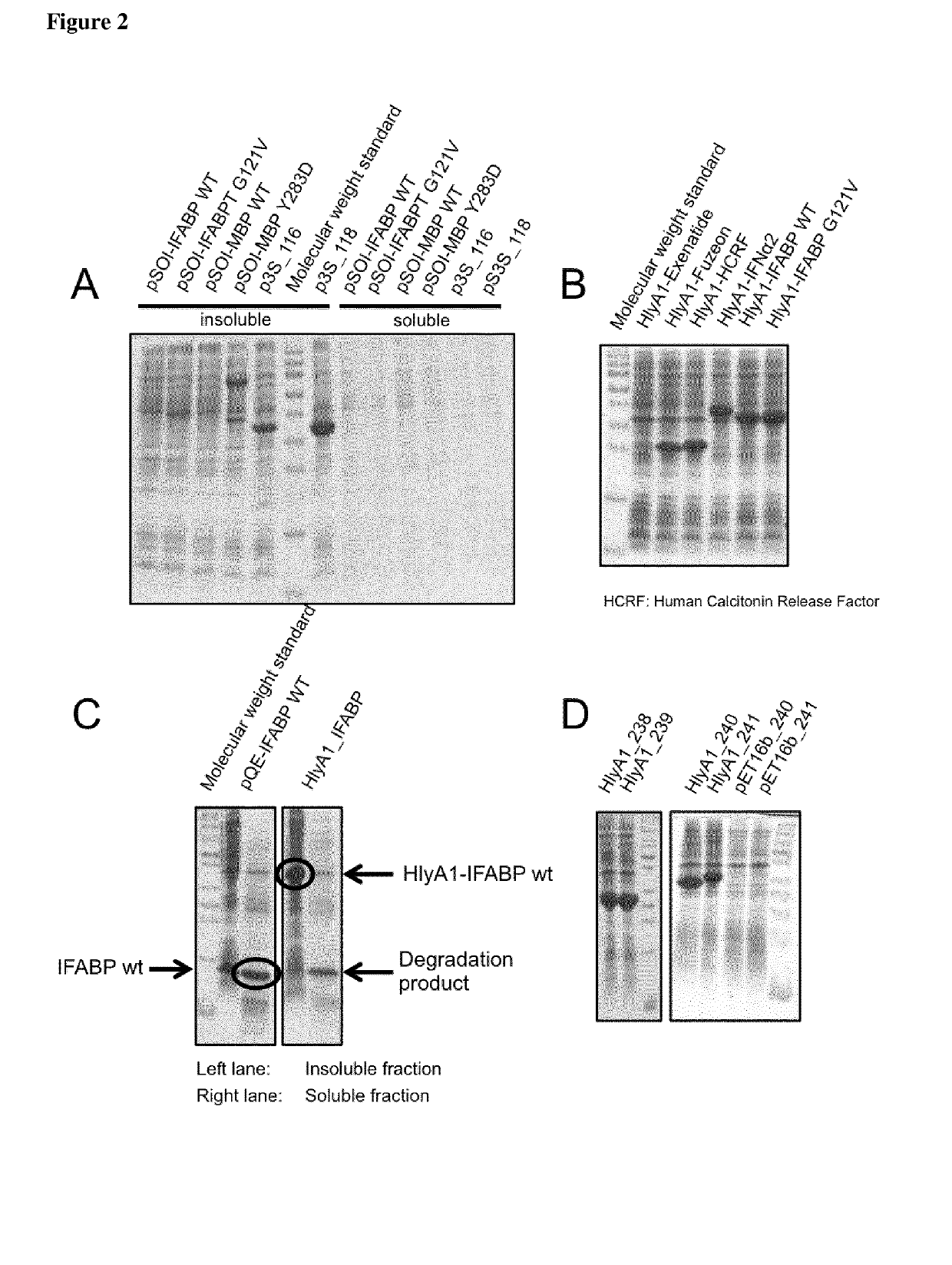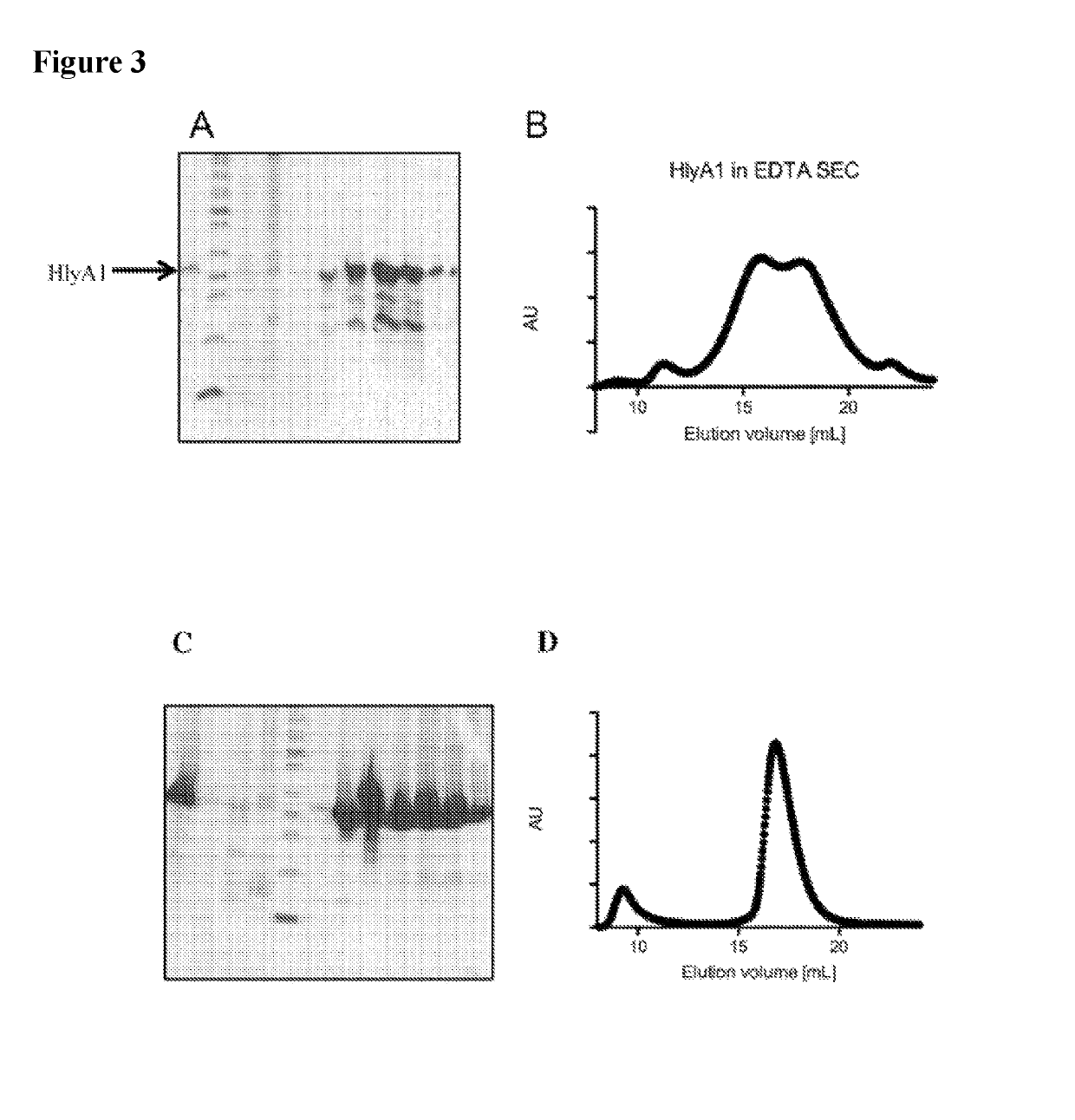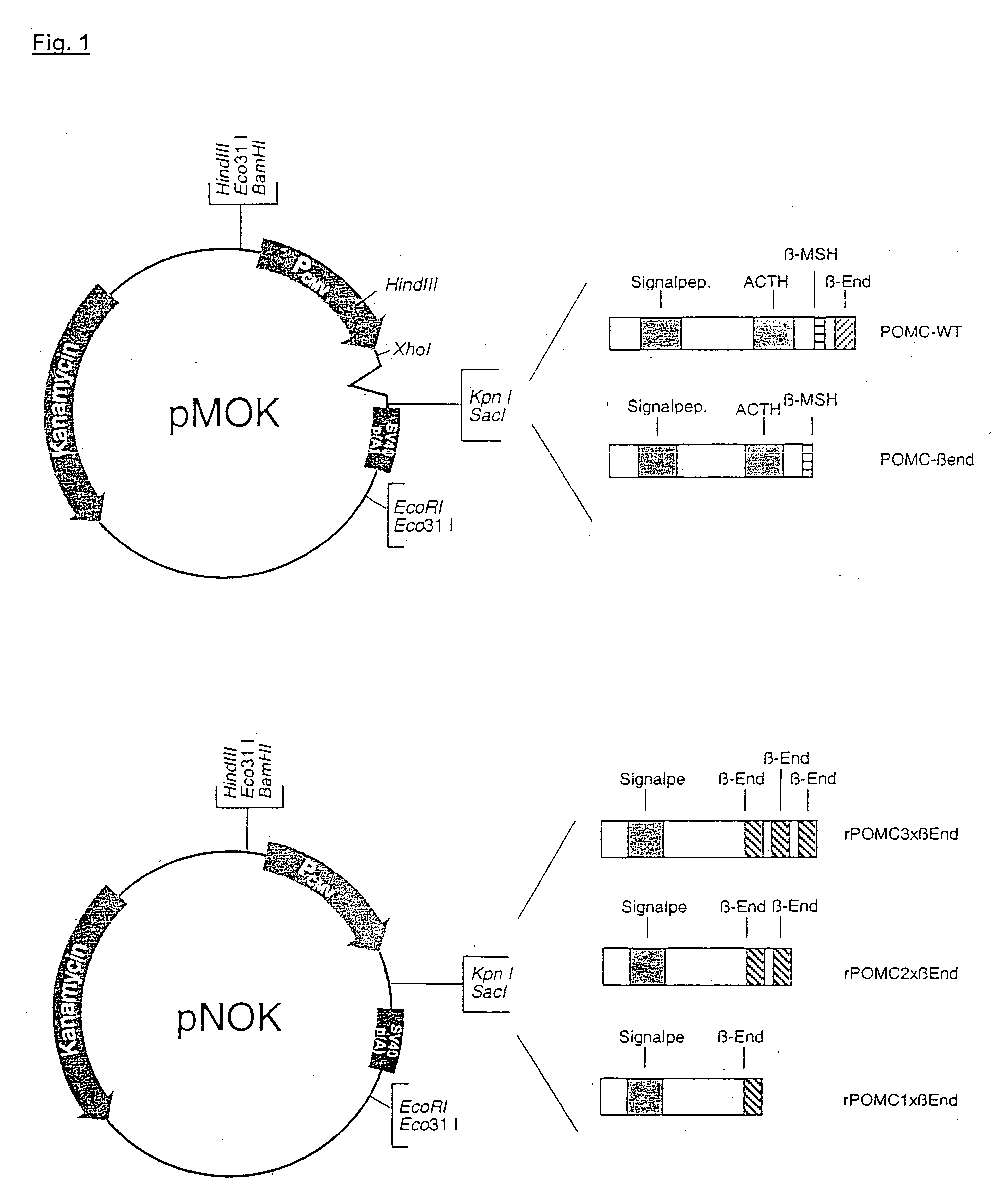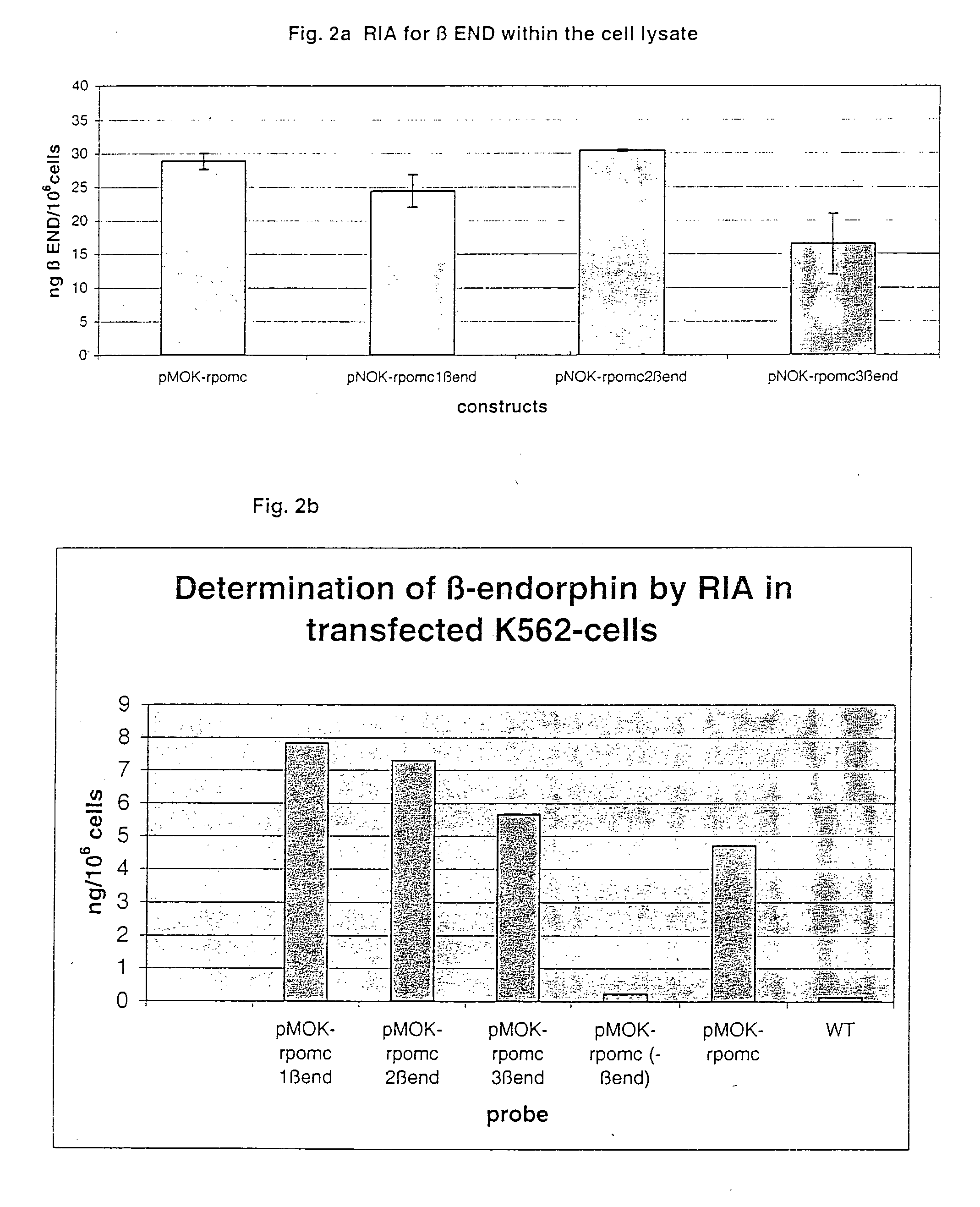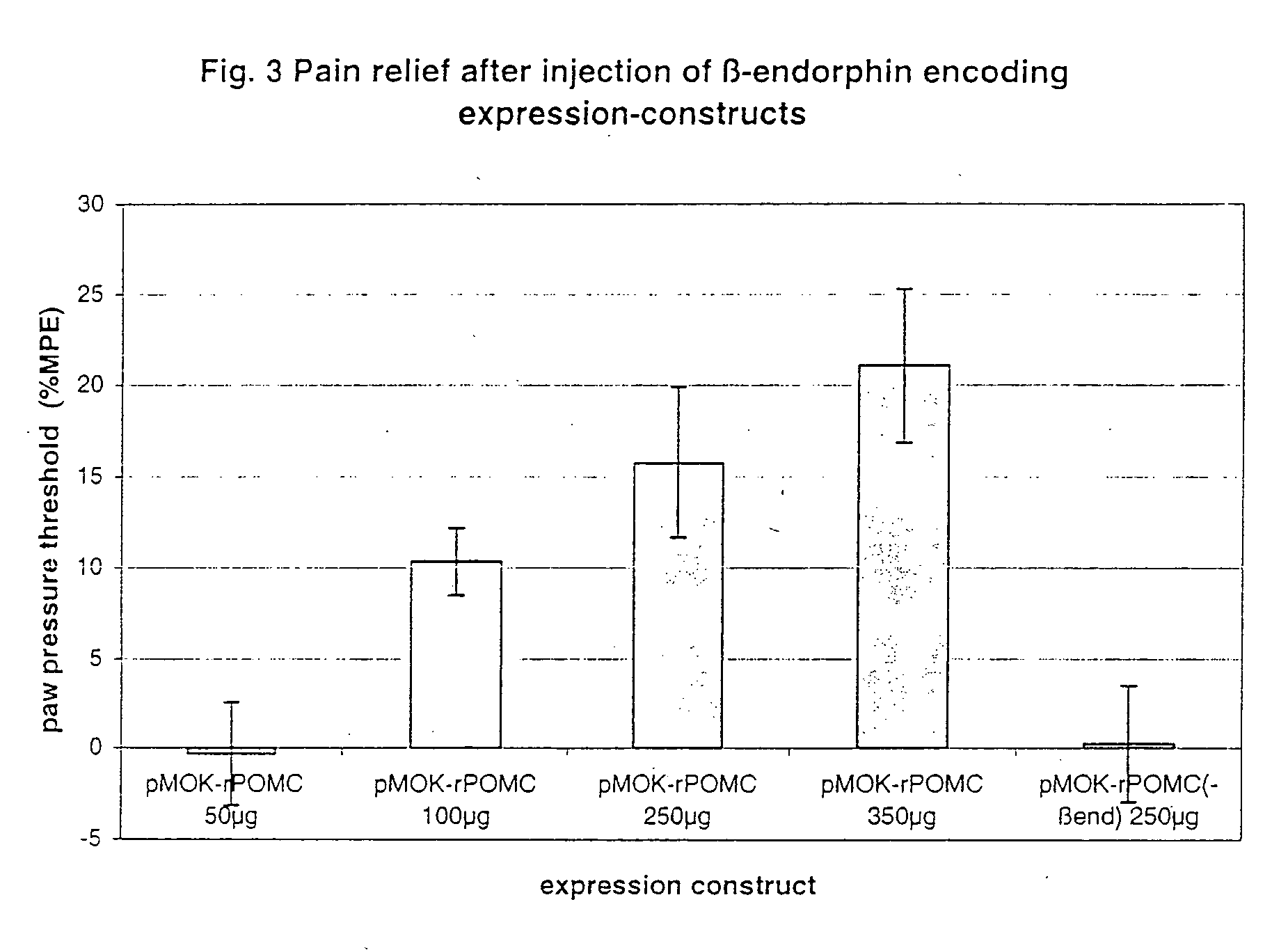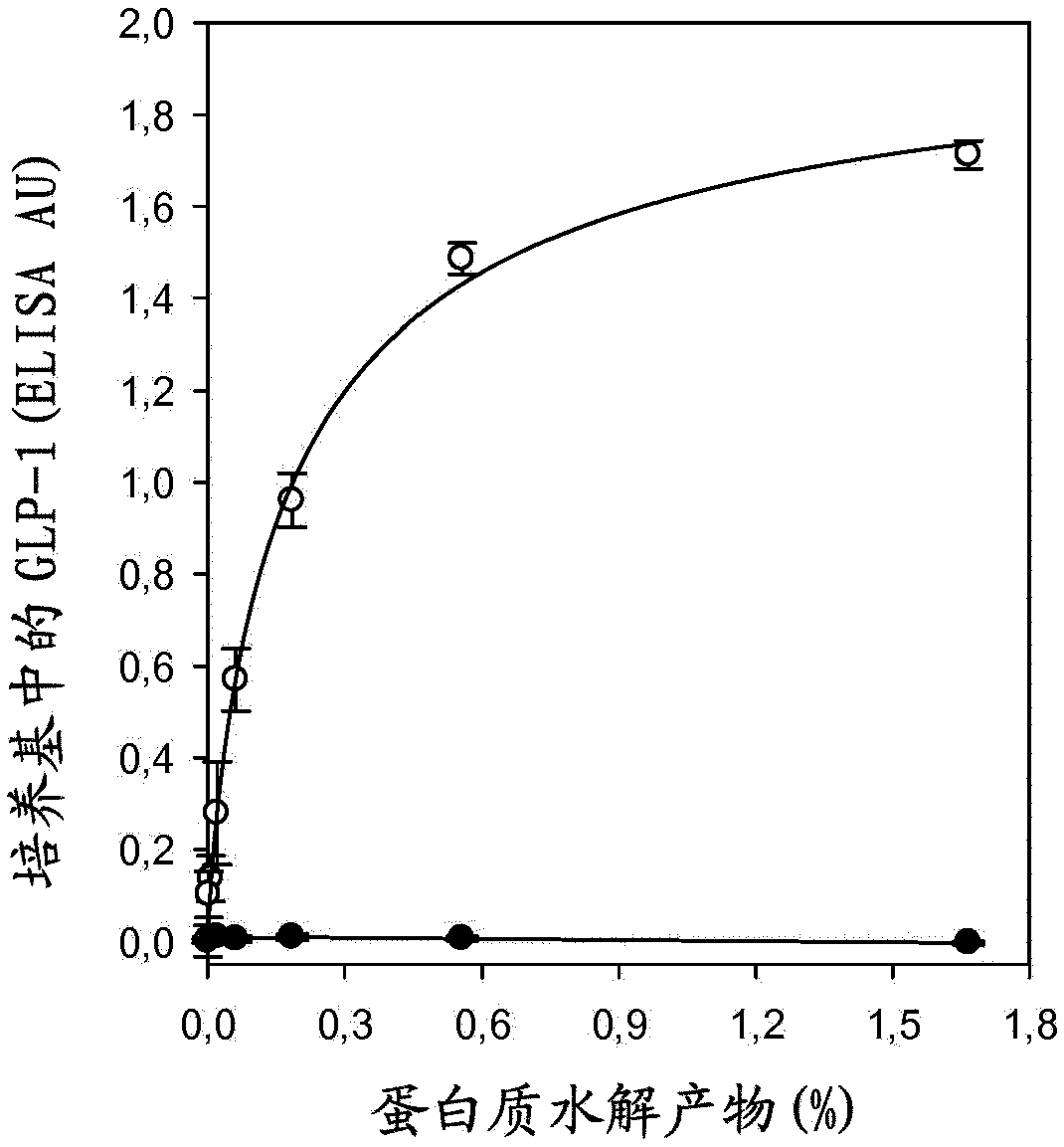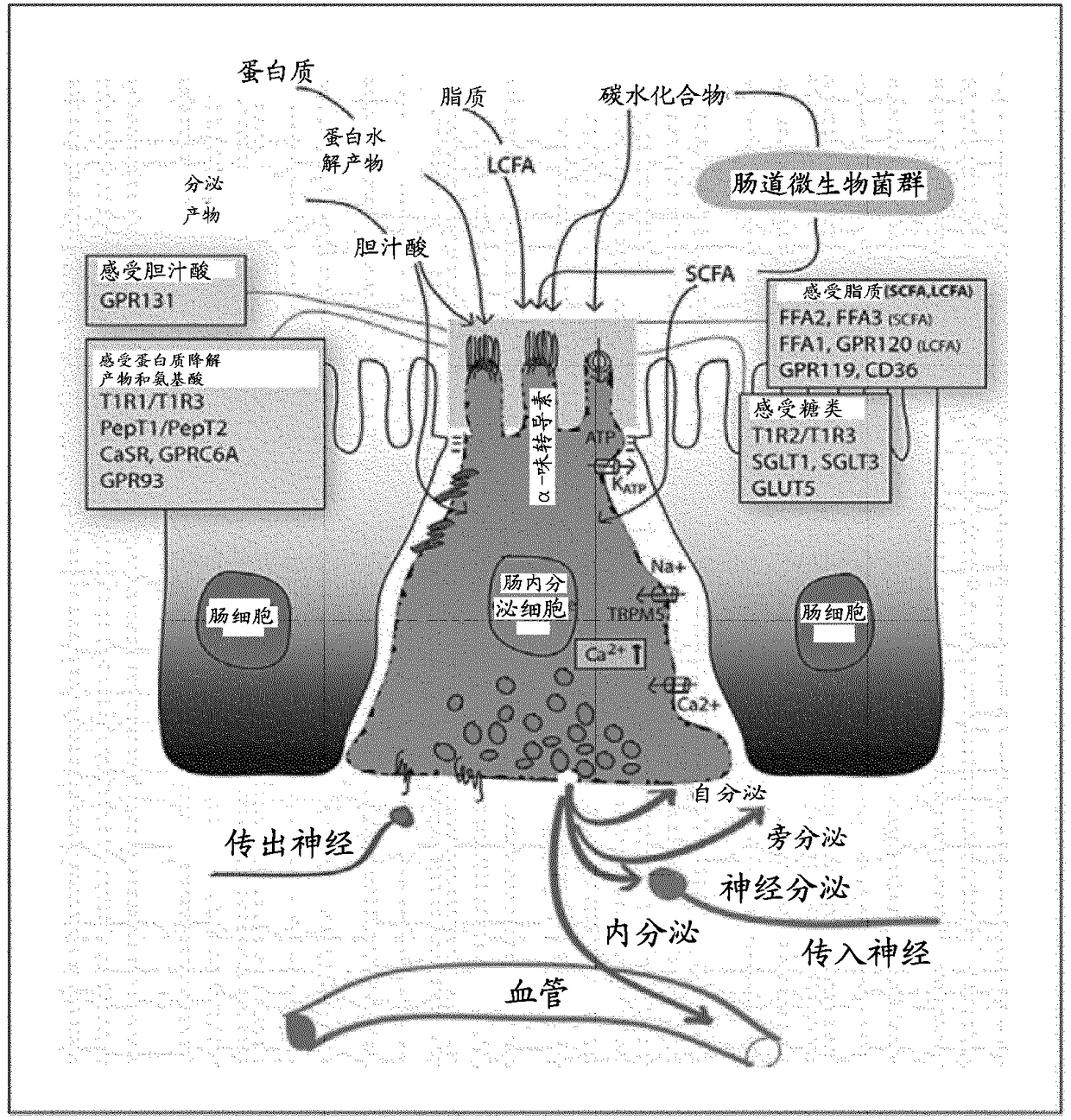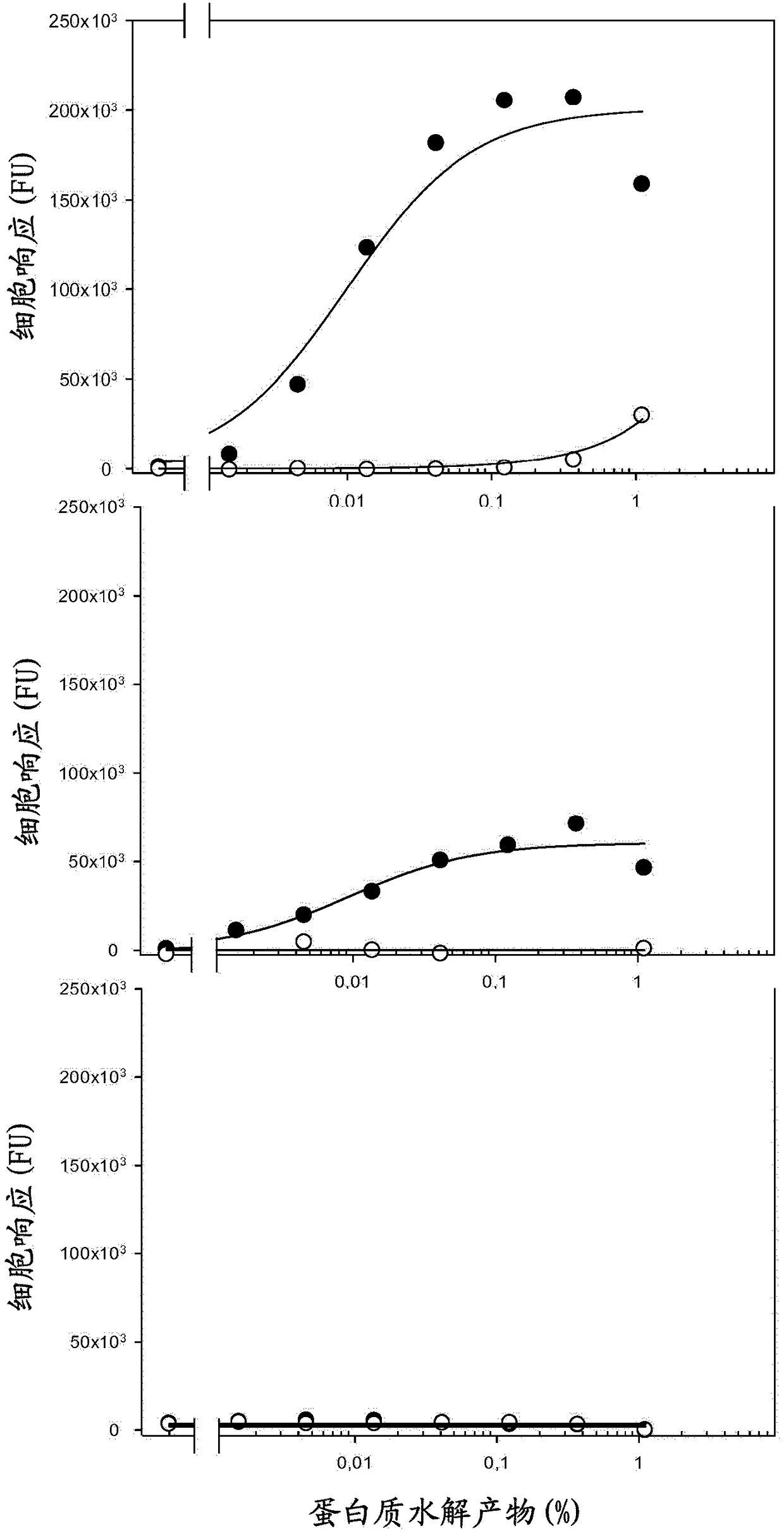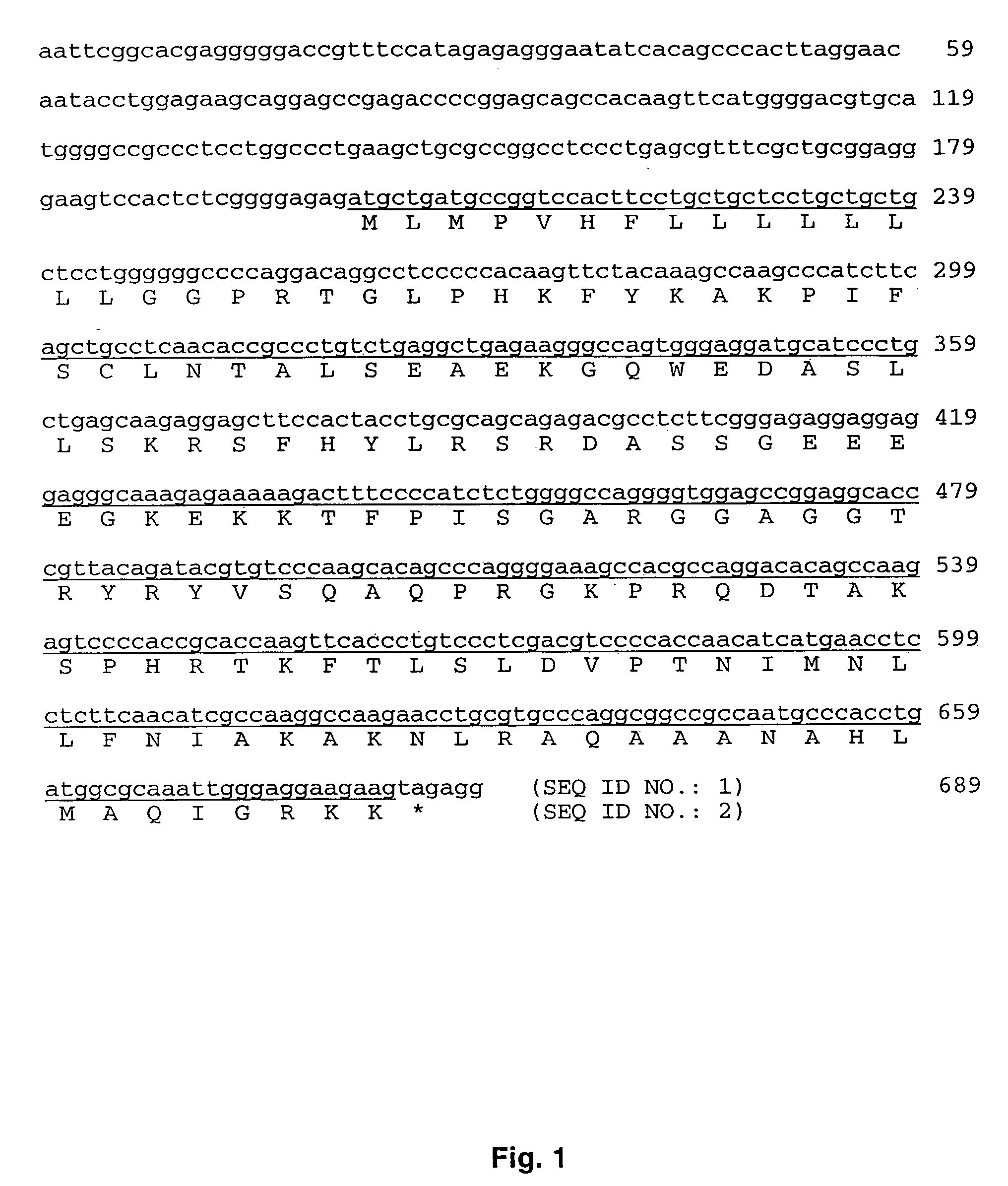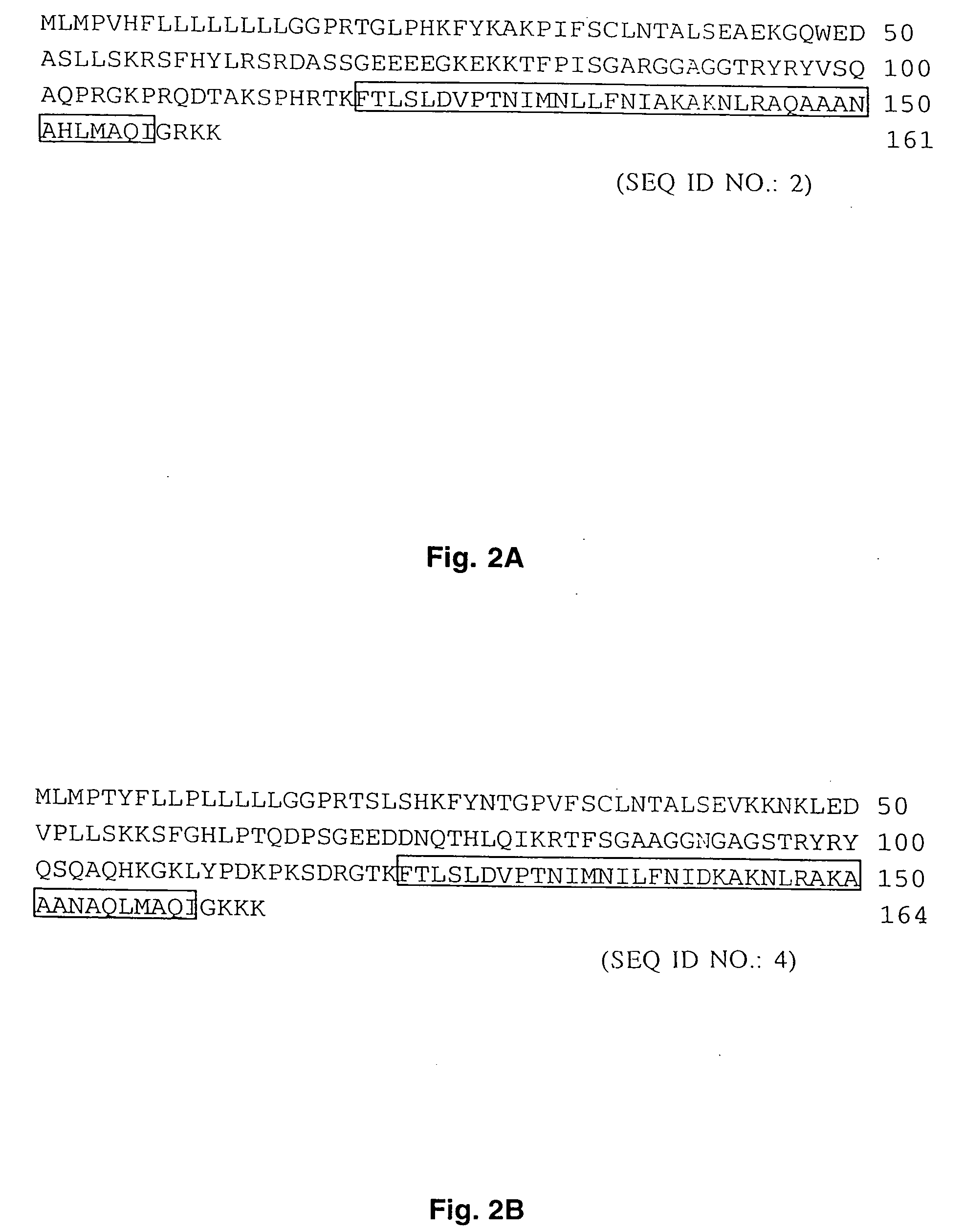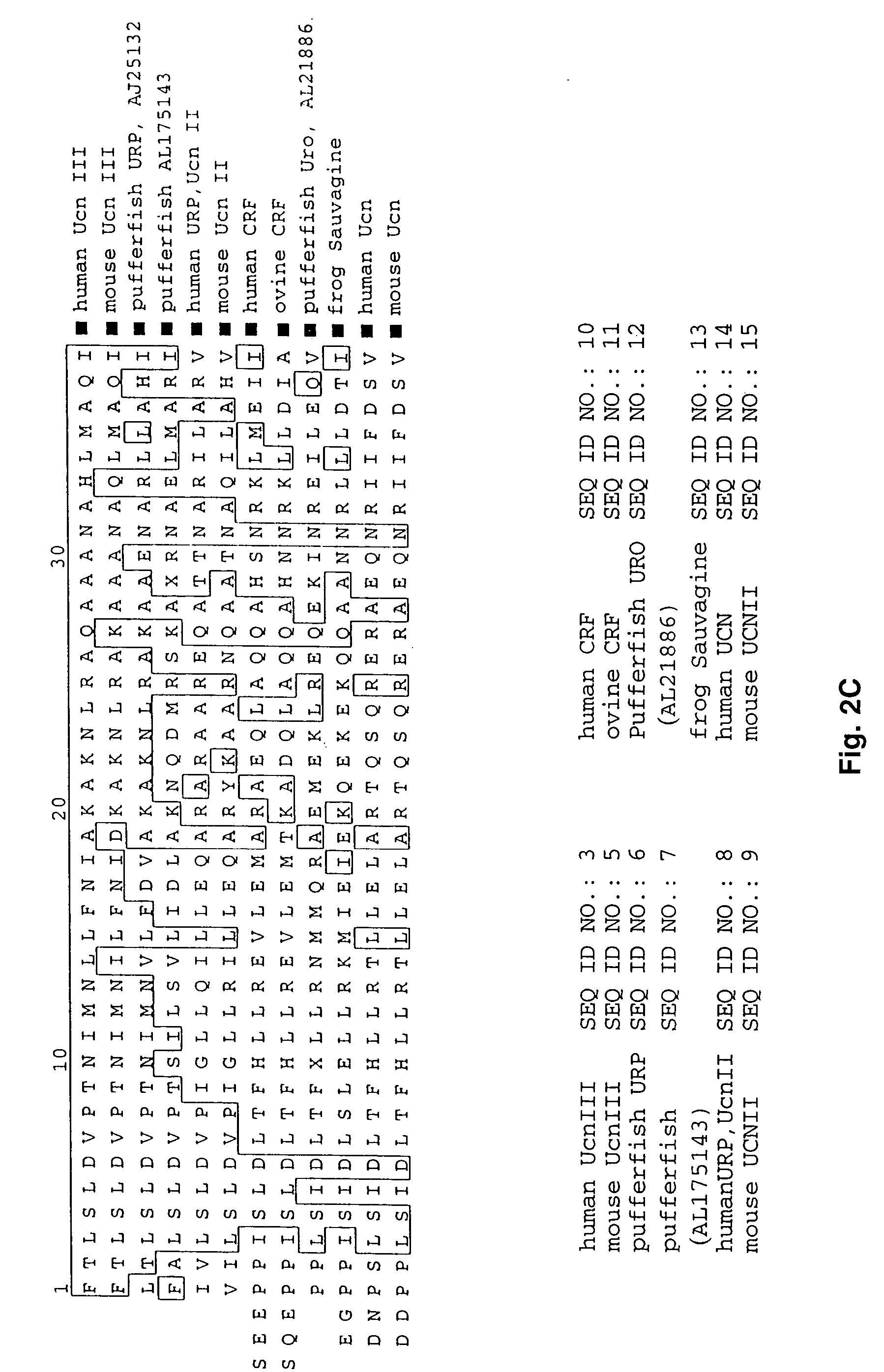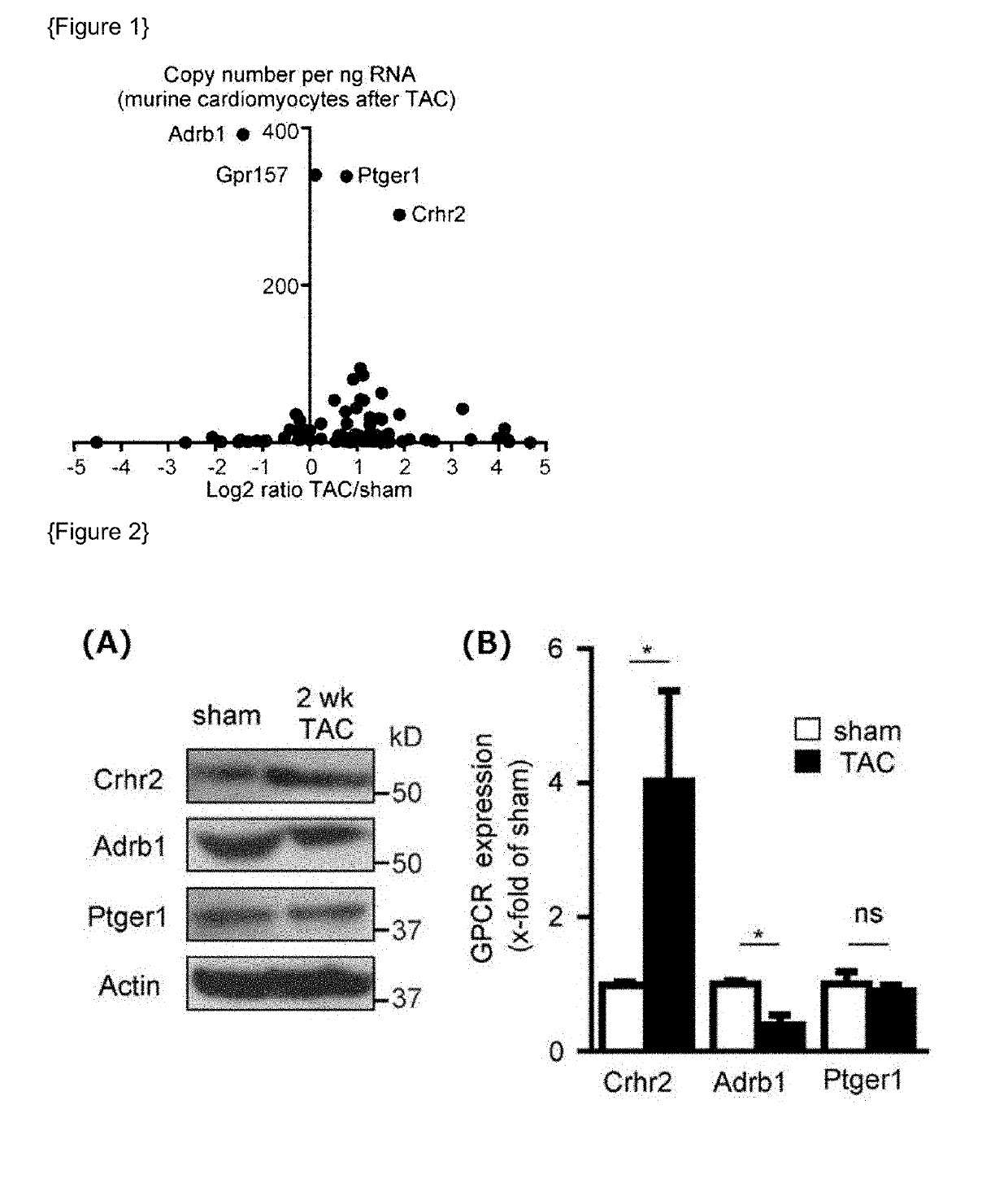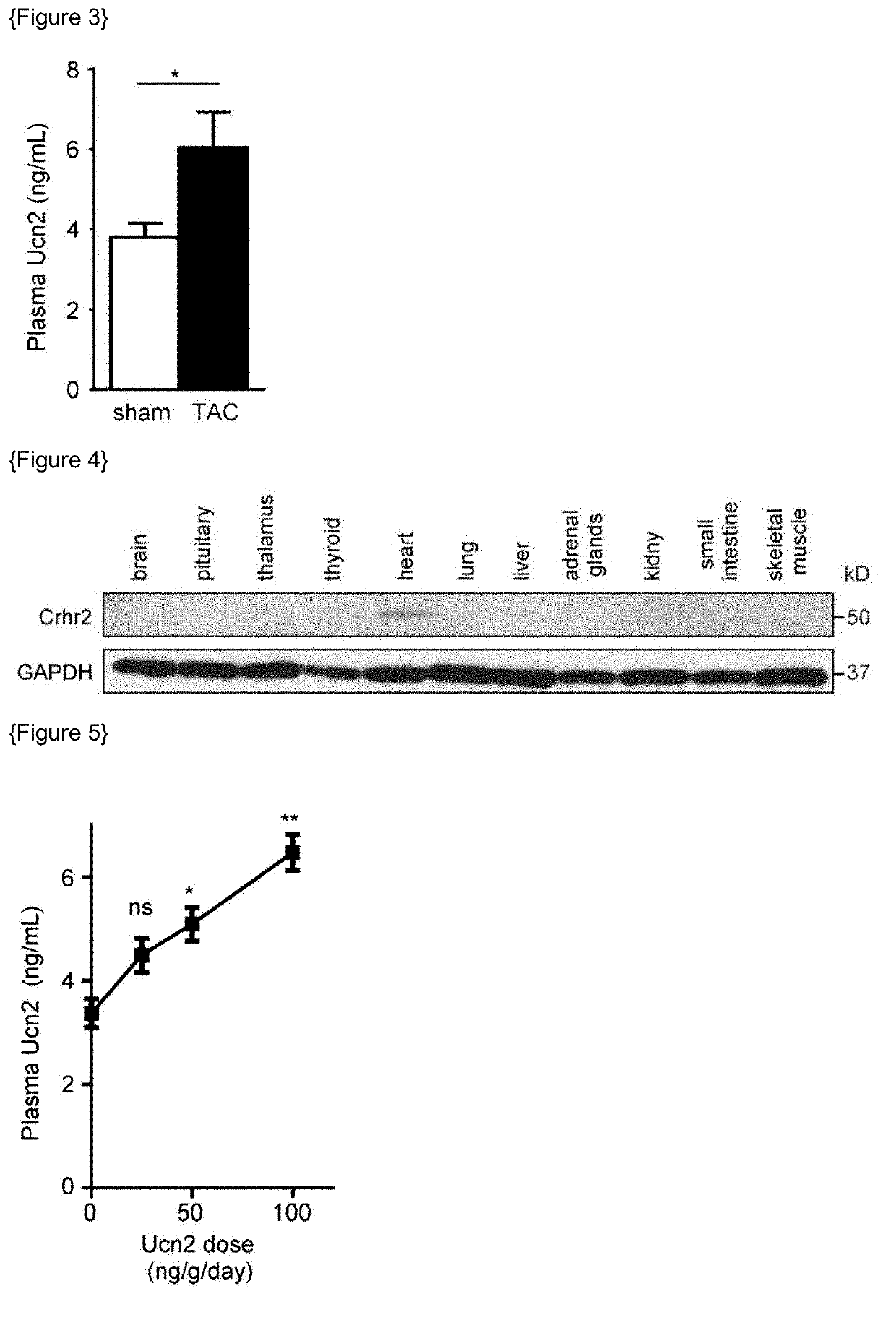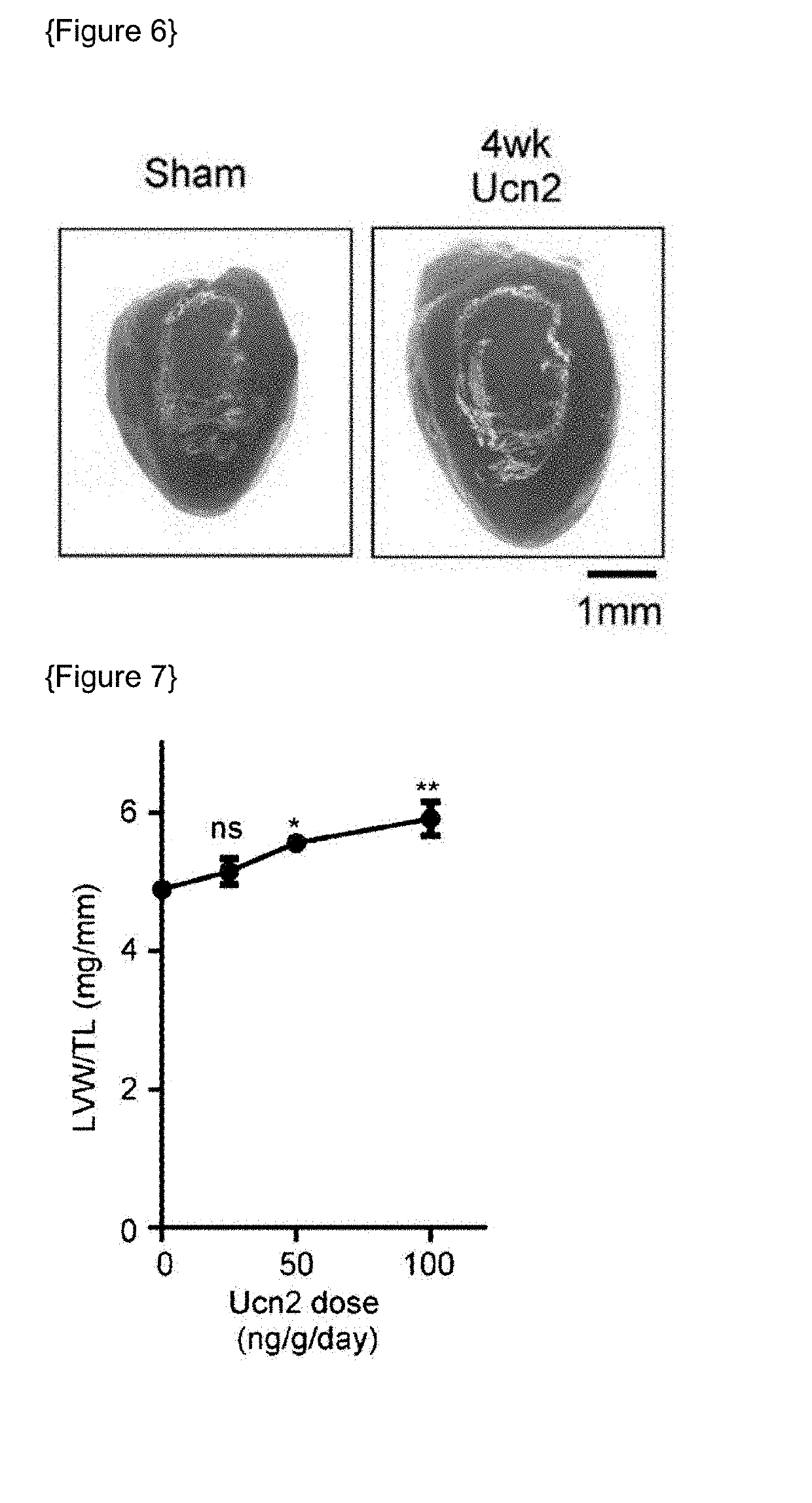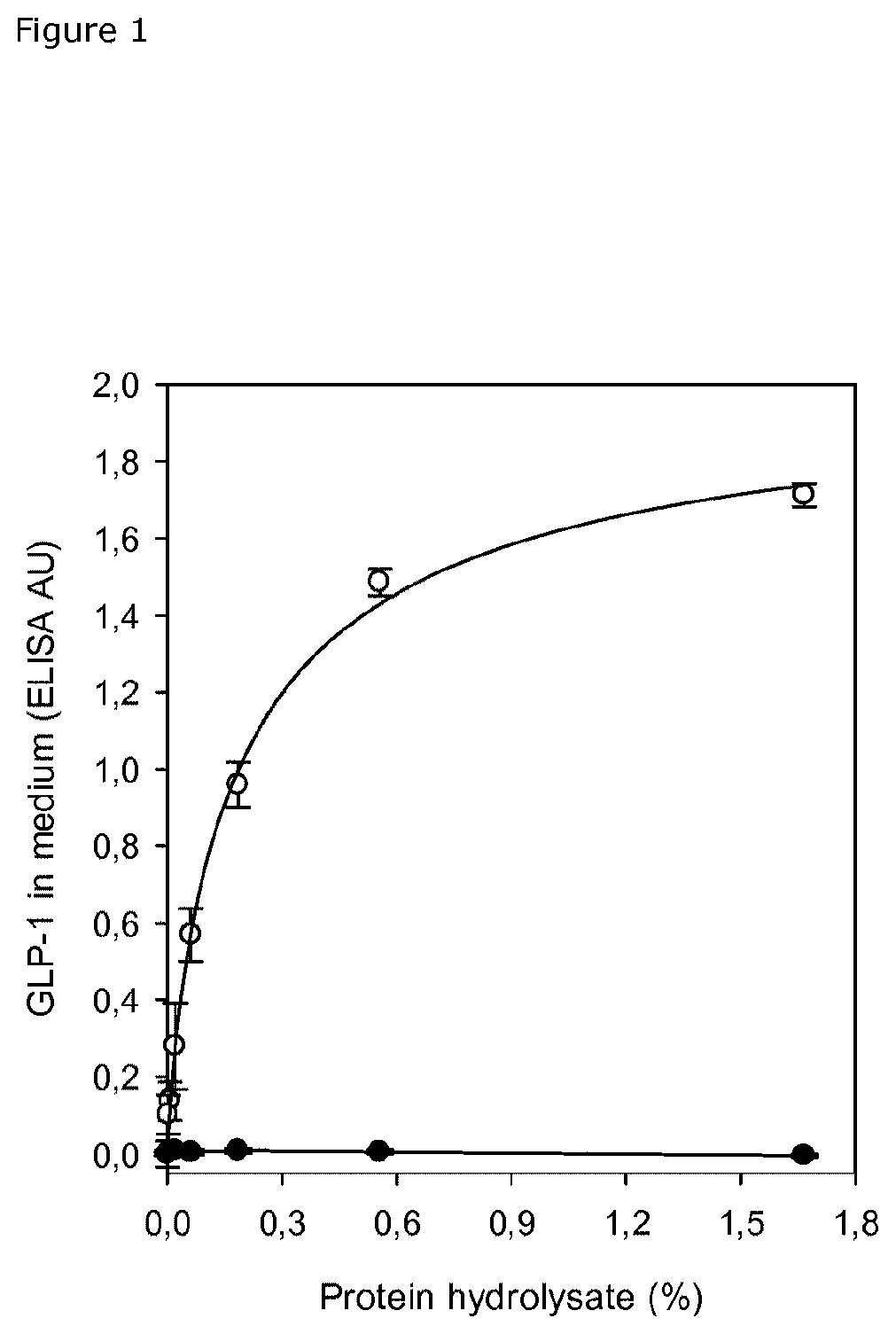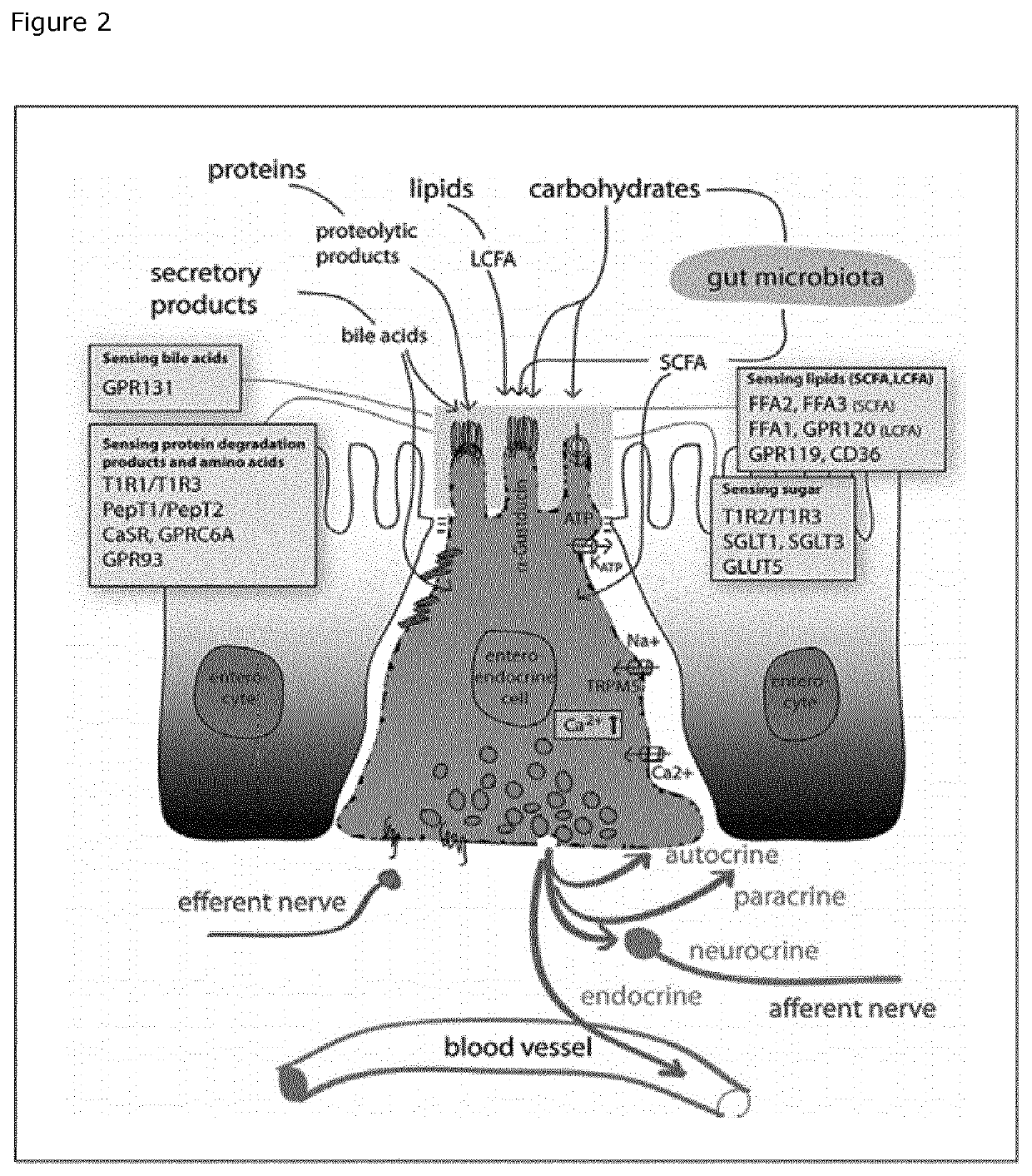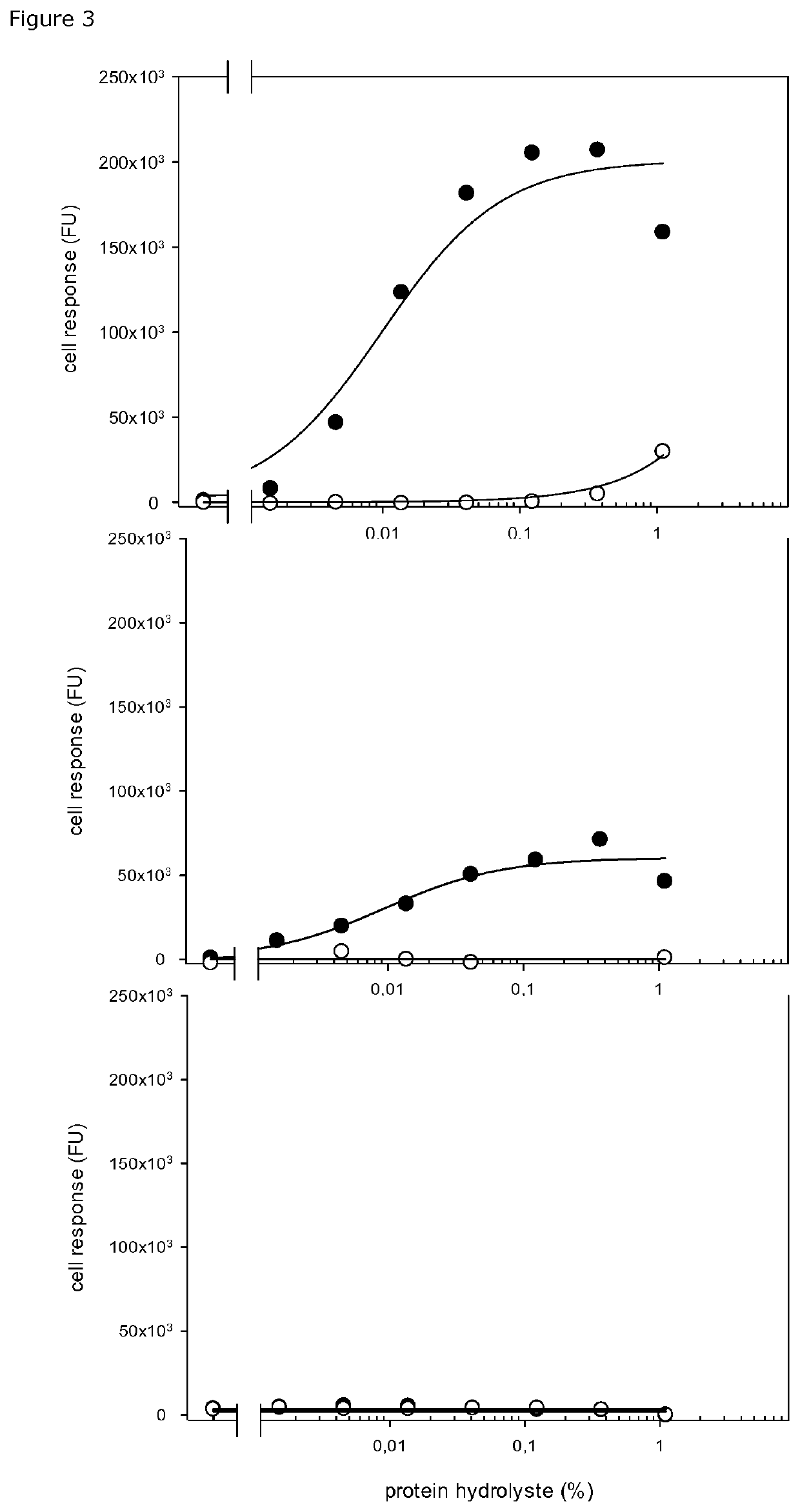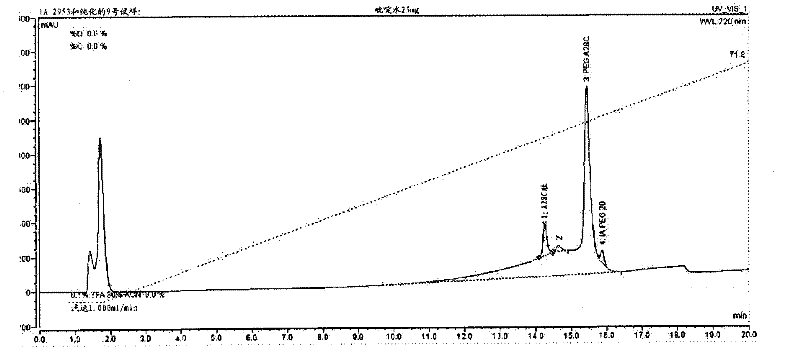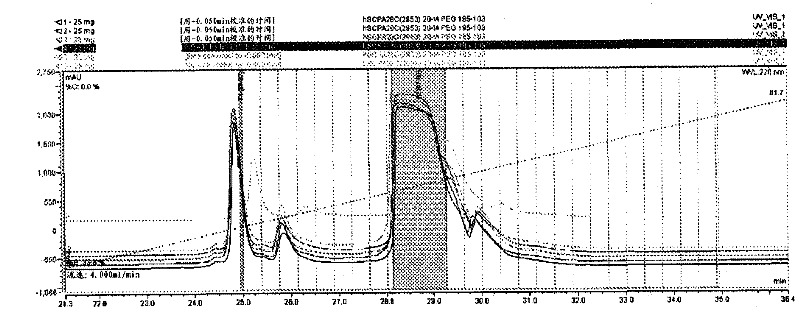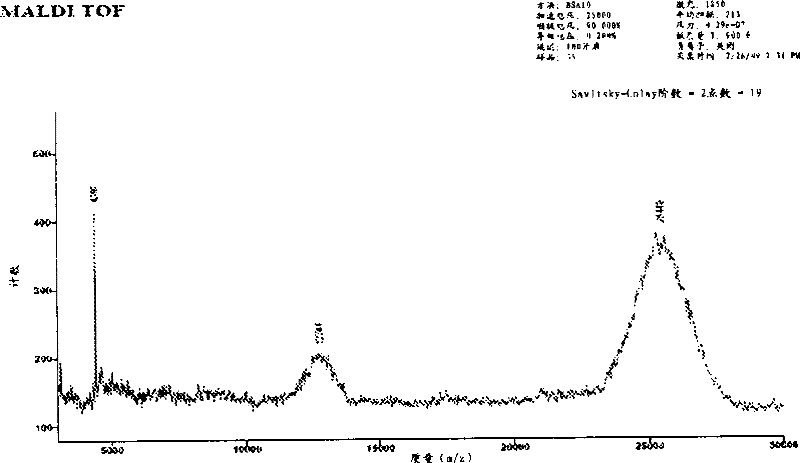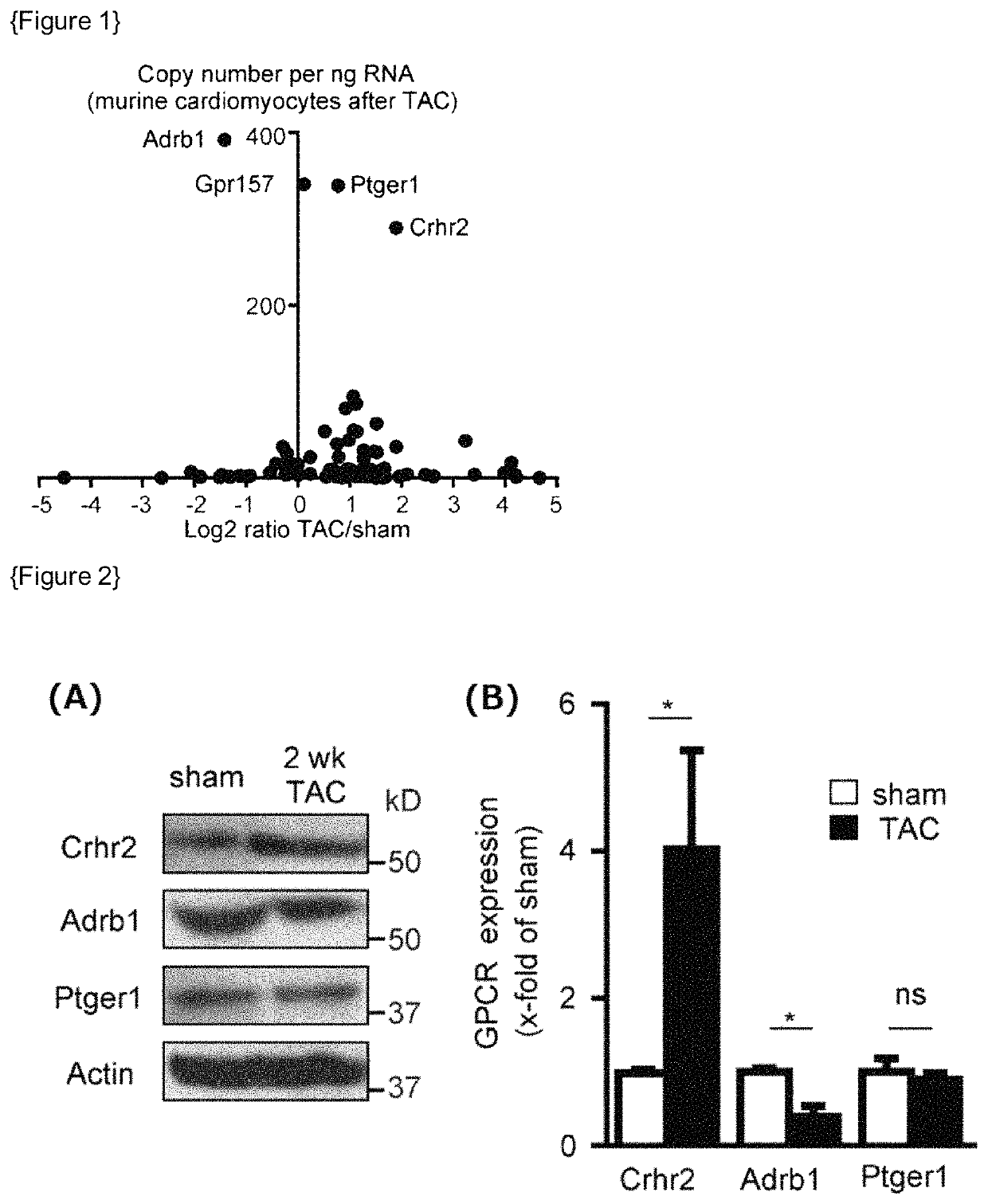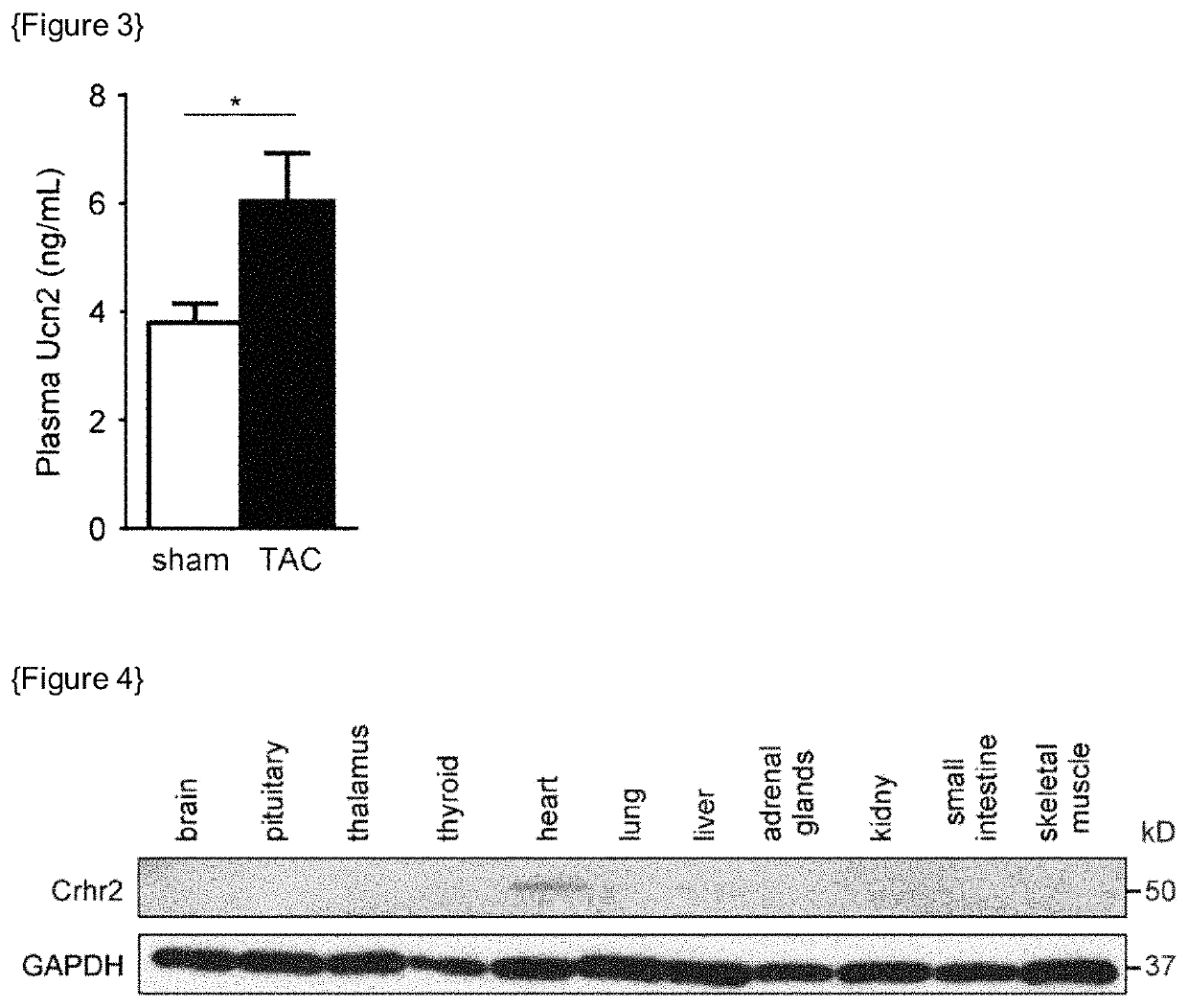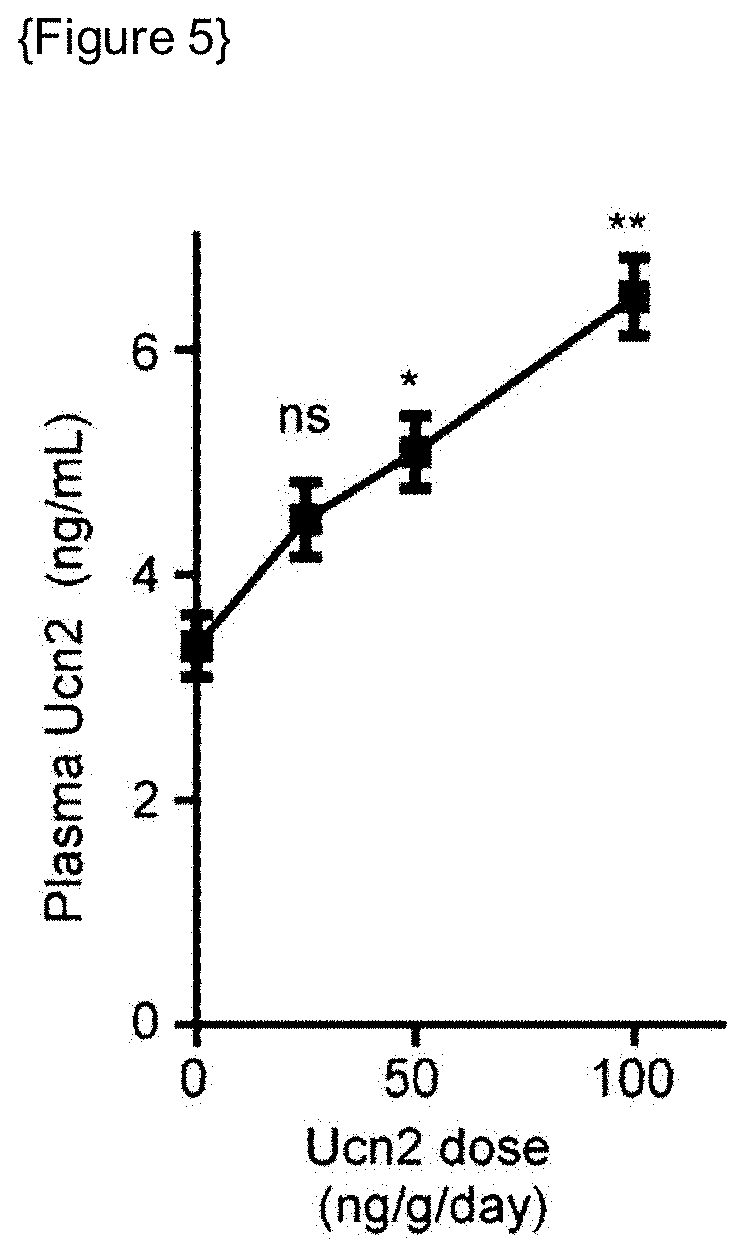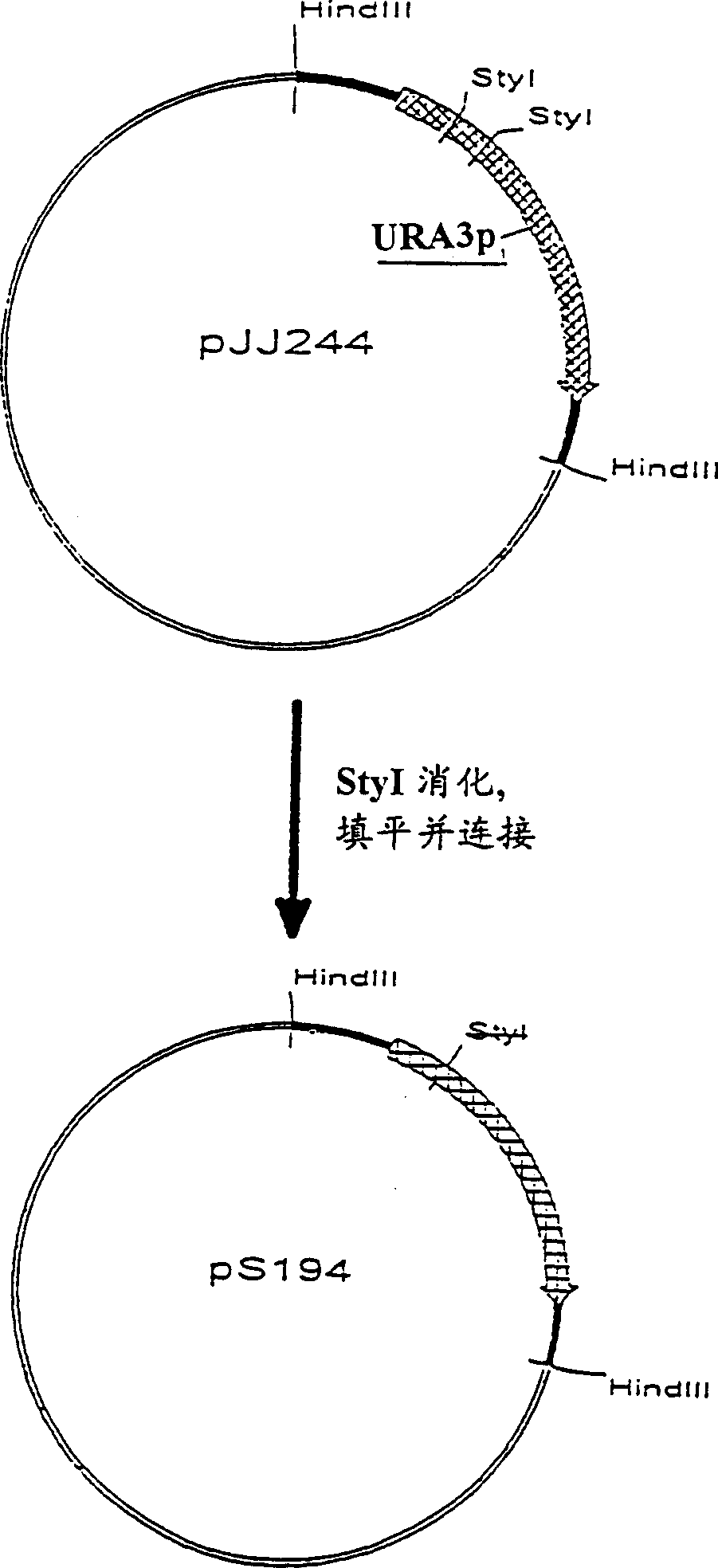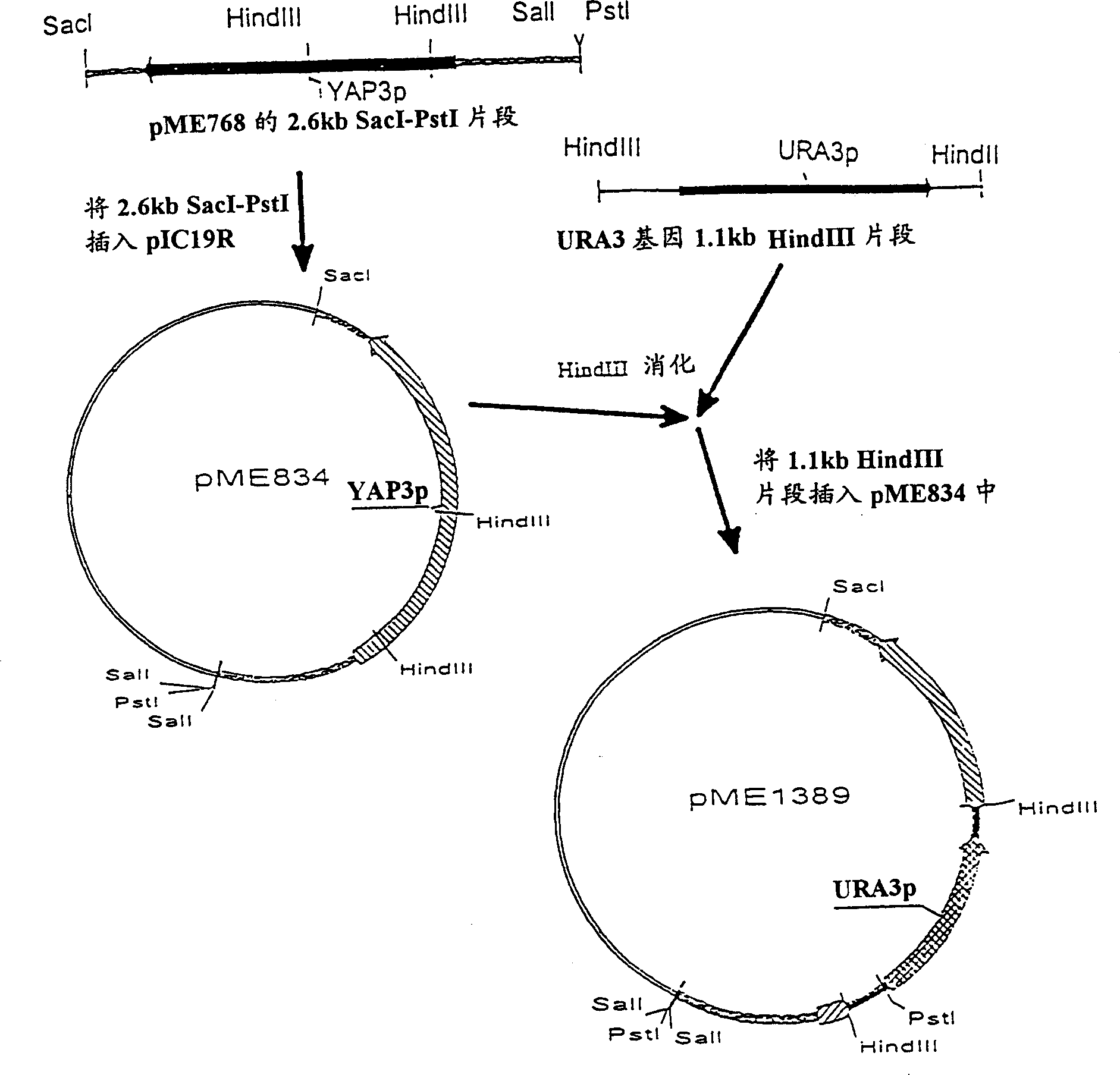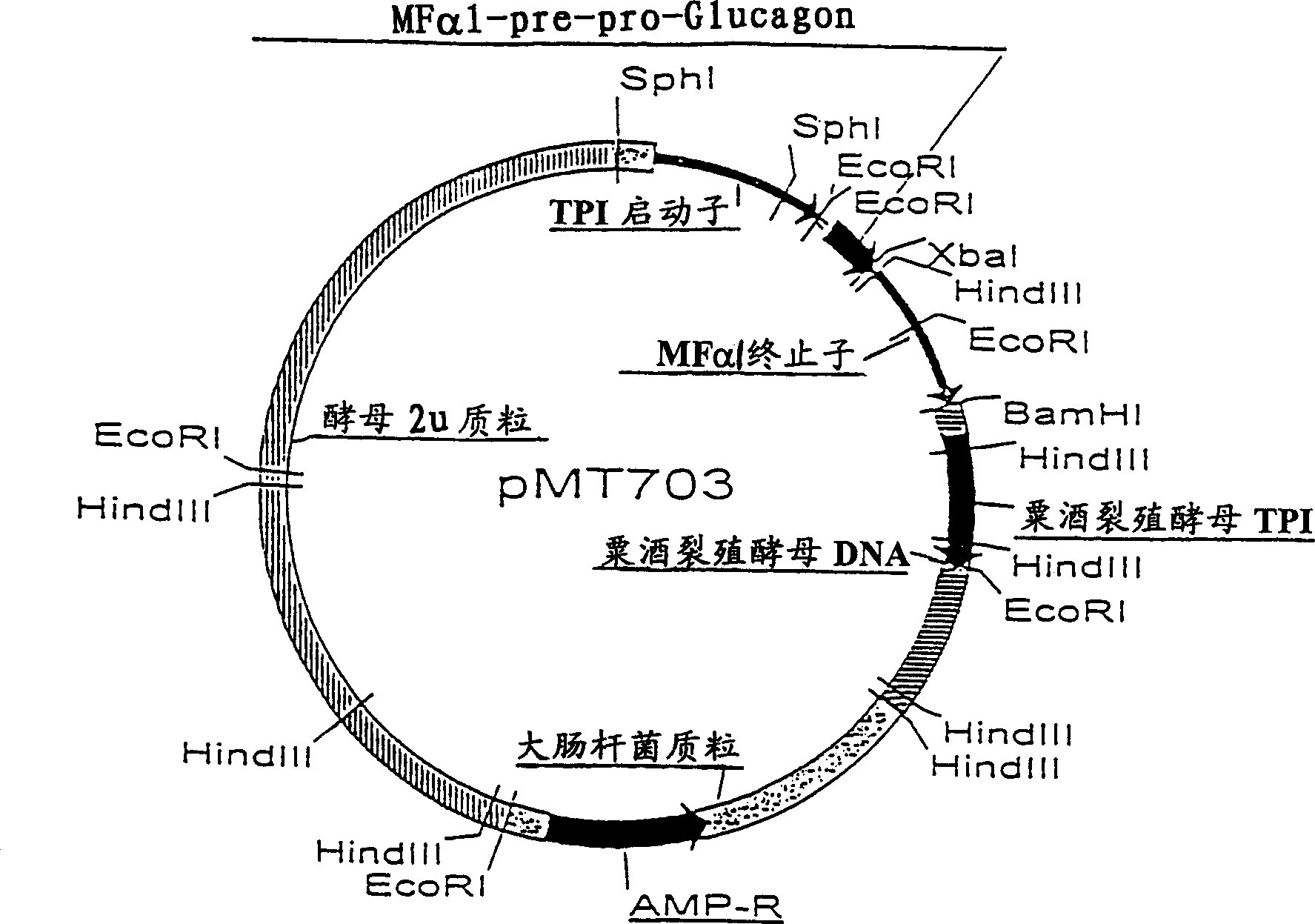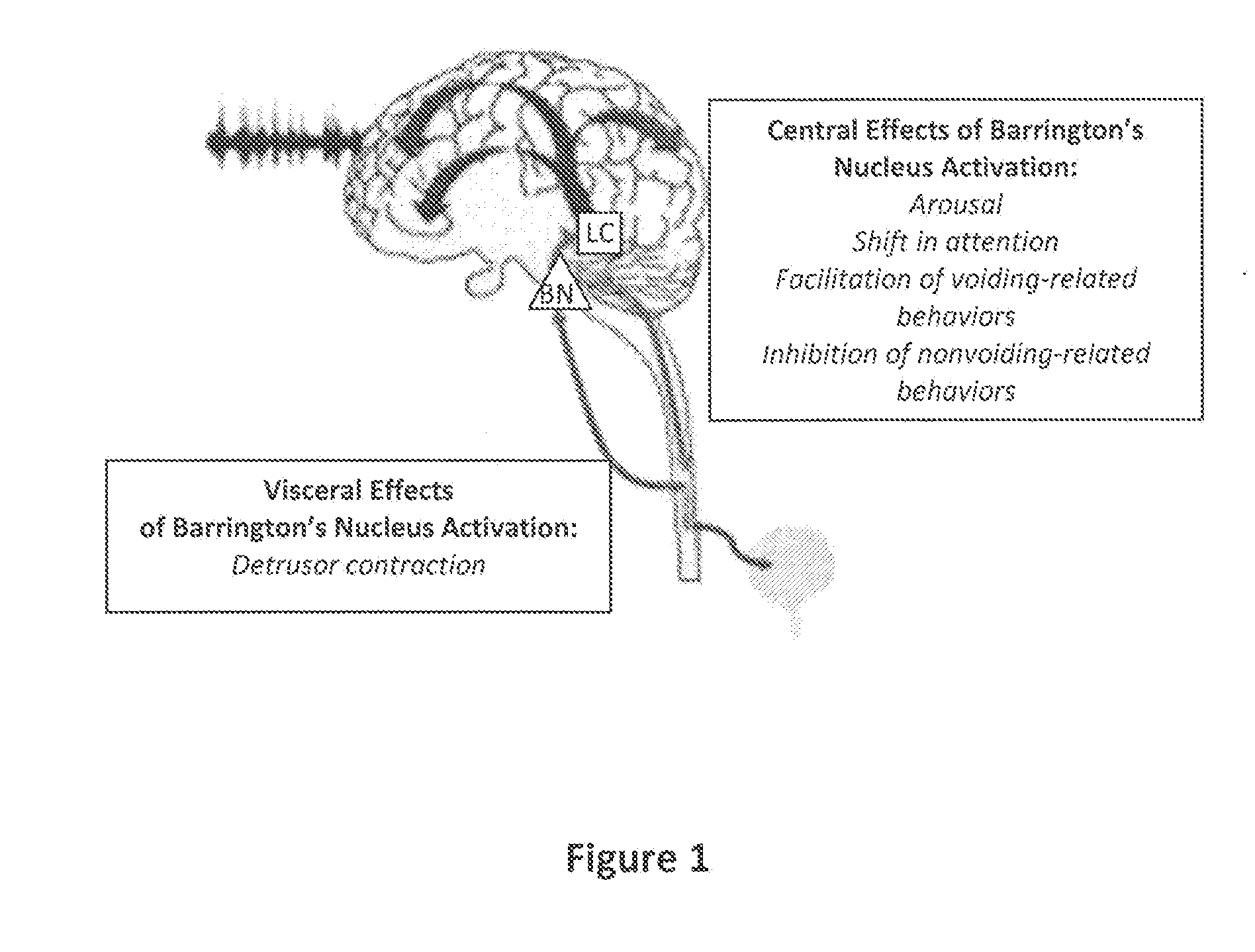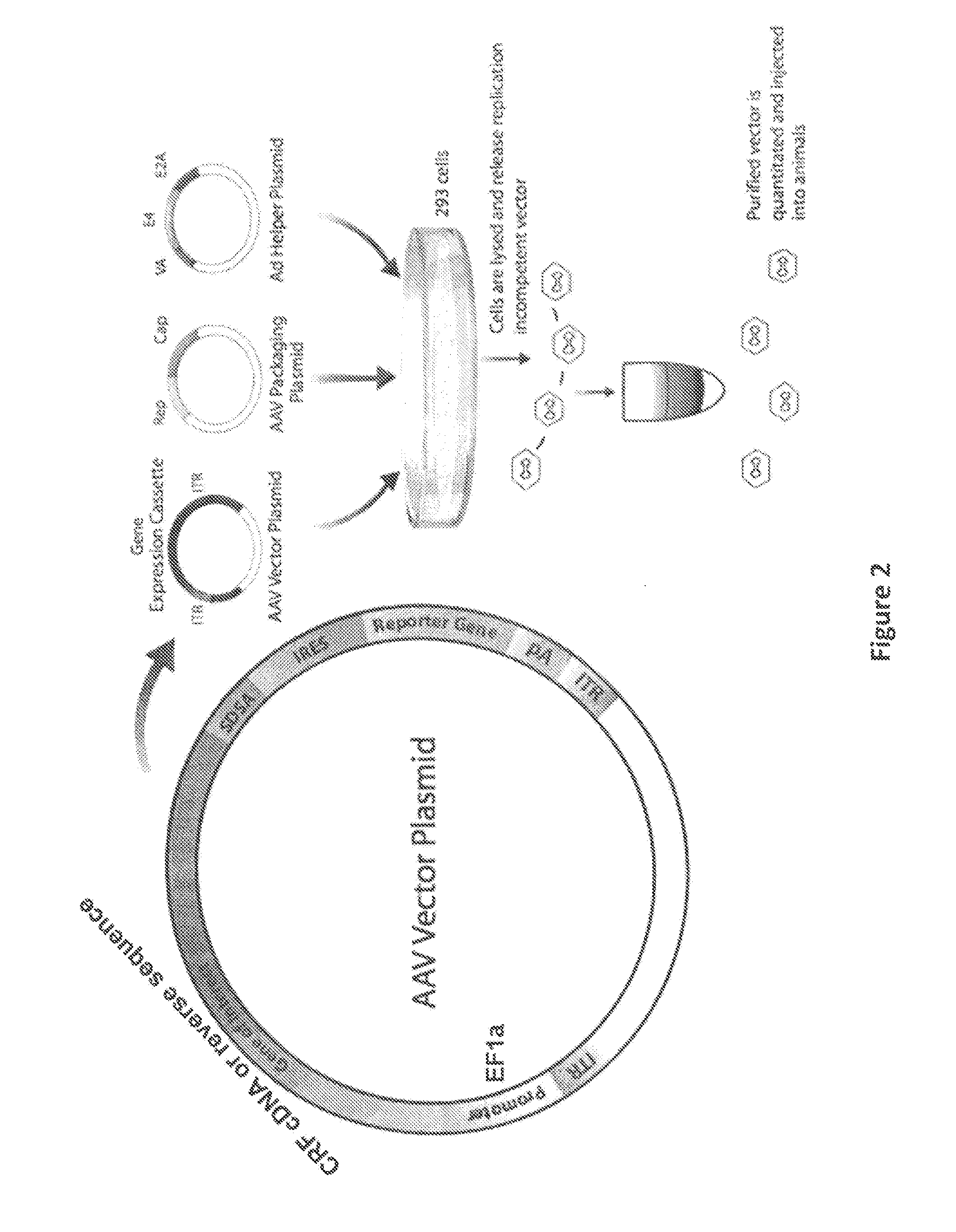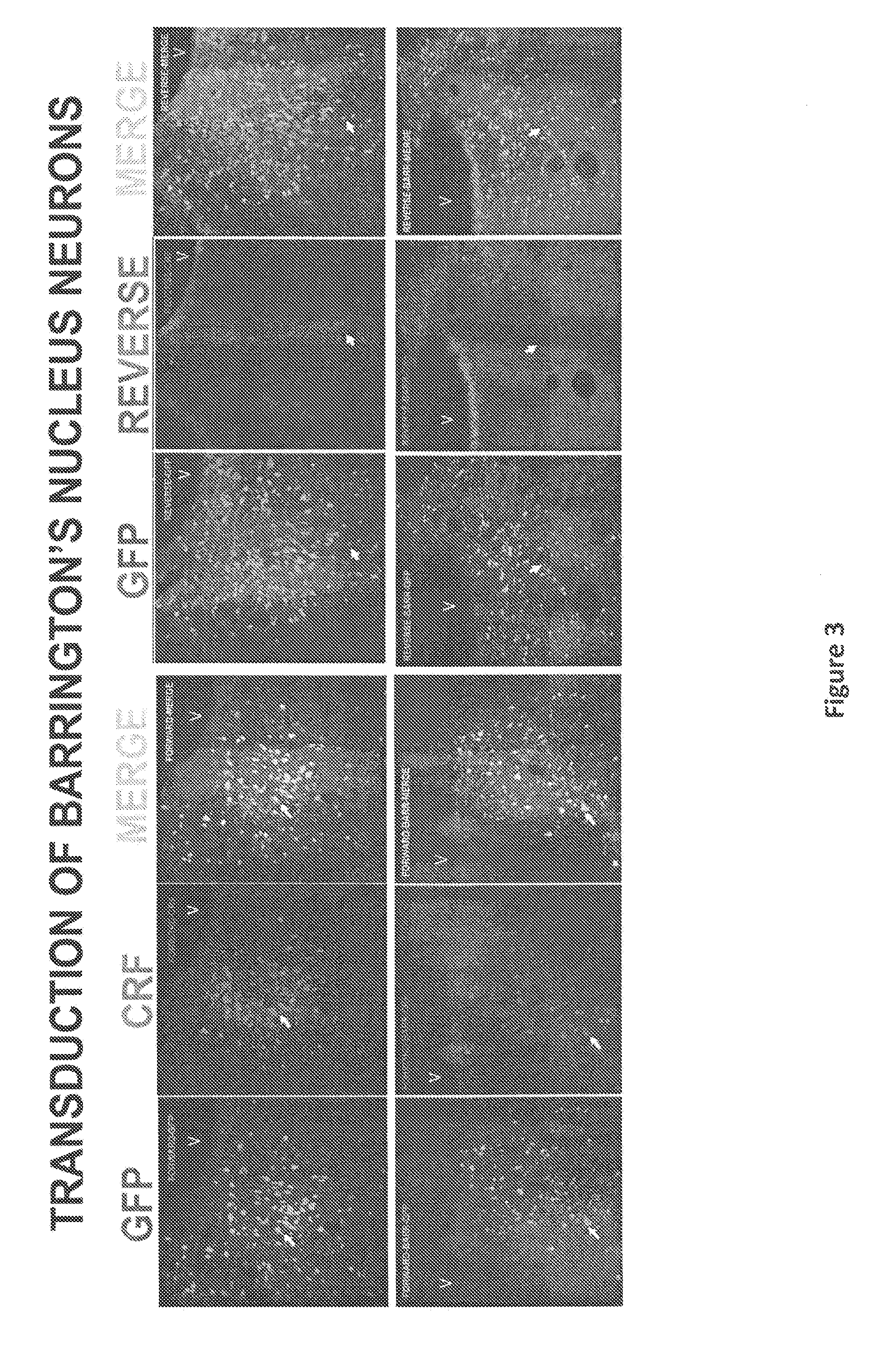Patents
Literature
42results about "Corticotropin releasing factor" patented technology
Efficacy Topic
Property
Owner
Technical Advancement
Application Domain
Technology Topic
Technology Field Word
Patent Country/Region
Patent Type
Patent Status
Application Year
Inventor
Activatable clostridial toxins
InactiveUS20090018081A1Long duration of therapyOvercome resistanceHydrolasesPeptide/protein ingredientsClostridial toxinNucleic acid
Owner:ALLERGAN INC
High purity peptides
InactiveUS20080287650A1High HPLC purityThymosin peptidesPeptide preparation methodsNesiritideHPLC measurement
Owner:TEVA PHARM USA INC
Urocortin-III and uses thereof
A search of the public human genome database identified a human EST, GenBank accession number AW293249, which has high homology to known pufferfish urocortin sequences. The full length sequence was amplified from human genomic DNA and sequenced. Sequence homology comparisons of the novel sequence with human urocortin I and urocortin II revealed that the sequence encoded a novel human urocortin, which was designated urocortin III (UcnIII). While urocortin III does not have high affinity for either CRF-R1 or CRF-R2, the affinity for CRF-R2 is greater than the affinity for CRF-R1. Urocortin III is capable stimulating cyclic AMP production in cells expressing CRF-R2α or β. Thus, the affinity is high enough that urocortin III could act as a native agonist of CRF-R2. However, it is also likely that urocortin III is a stronger agonist of a yet to be identified receptor.
Owner:RES DEVMENT FOUND
Stresscopins and their uses
InactiveUS7291341B2Suppress food intakeSuppress heat-induced edemaCompound screeningNervous disorderHypotensive agentsHeat induced
The invention provides novel nucleic acids and polypeptides, referred to herein as stresscopin 1 and stresscopin 2, which preferentially activate the CRH-R2 receptor over the R1 receptor. Stresscopins, analogs and mimetics, and related CRH-R2 agonists suppress food intake and heat-induced edema; but do not induce substantial release of ACTH. Stresscopin also finds use in the recovery phase of stress responses, as an anti-inflammatory agent, as a hypotensive agent, as a cardioprotective agent, and in the treatment of psychiatric and anxiolytic disorders. Stresscopin nucleic acid compositions find use in identifying homologous or related proteins and the DNA sequences encoding such proteins; in producing compositions that modulate the expression or function of the protein; and in studying associated physiological pathways.
Owner:THE BOARD OF TRUSTEES OF THE LELAND STANFORD JUNIOR UNIV
Corticotropin releasing factor 2 receptor agonists
InactiveUS6936585B2Effective treatmentPeptide/protein ingredientsMuscular disorderDiseaseCorticotropins
Isolated corticotropin releasing factor derivatives, and nucleic acids encoding the same, are effective for treating corticotropin releasing factor 2 receptor modulated disorders such as muscular dystrophy.
Owner:APTALIS PHARMA
Melanocortin receptor antagonists and modulations of melanocortin receptor activity
The clinical outcome of disseminated melanoma is grim. Small molecular weight antagonists (preferably about seven amino acid residues) specific for MCR on melanoma cells are provided for the therapy of melanoma as well as in other conditions where modulation of MCR is of clinical significance. A particularly preferred antagonist is p-anisoyl-[D-Arg6,9, D-Lys11, D-Leu12] dynorphin A(6-12)-NH2, which is an excellent antagonist of the MCR-1 receptor.
Owner:RGT UNIV OF CALIFORNIA
Corticotropin releasing factor 2 receptor agonists
InactiveUS7192923B2Cell receptors/surface-antigens/surface-determinantsPeptide/protein ingredientsMuscular dystrophyAdrenal gland
Isolated corticotropin releasing factor derivatives, and nucleic acids encoding the same, are effective for treating corticotropin releasing factor 2 receptor modulated disorders such as muscular dystrophy.
Owner:APTALIS PHARMA
CRFR1 selective ligands
InactiveUS20040204564A1Easy to carryHigh throughput screeningNervous disorderPeptide/protein ingredientsStereochemistryPeptide analog
Owner:SALK INST FOR BIOLOGICAL STUDIES
Amino diacids containing peptide modifiers
InactiveUS20160207957A1Carbamic acid derivatives preparationPeptide/protein ingredientsCombinatorial chemistryPerylene derivatives
The present invention relates to peptide modifier compounds of Formula (1), or a salt thereof, wherein: a is an integer from 1 to 10, more preferably from 1 to 3; b is an integer from 0 to 7; Z is a terminal group and Y is a bivalent group. Further aspects of the invention relate to intermediates in the preparation of compounds of Formula (1), and the use of compounds of Formula 1 in the synthesis of peptide derivatives.
Owner:CHEM & BIOPHARML LAB OF PATRAS
Corticotropin-releasing hormone analogs
InactiveUS6849600B2CorticotropinPeptide preparation methodsCorticotropin-releasing hormoneAmino acid
This invention relates to peptide analogs of corticotropin-releasing hormone. Particularly, the invention provides analogs wherein the 38th amino acid from the N-terminus is D-Nle, i.e. [D-Nle38]-CRH peptide.
Owner:RGT UNIV OF CALIFORNIA
CRH and POMC effects on animal growth
ActiveUS20050221332A1Increase probabilityMicrobiological testing/measurementFermentationCarcass weightPredictive value
The present invention provides for selection of bovine animals that will display phenotypes associated with increased rates of growth. These phenotypes include hot carcass weight, average daily gain, shipping weight, end of test rib eye area, and adjusted weaning weight which is a measure of post-natal growth, based on the knowledge of their CRH, POMC and MC4R genotypes. The predictive value comes from the discovery that certain single nucleotide polymorphisms (SNPs) in these genes are linked to higher growth rate phenotypes. Specifically, the phenotypes that correlated with specific SNP's are end-of-test rib-eye area, adjusted weaning weight, average daily gain, shipping weight and hot carcass weight. The invention also provides novel kits that can be used in making the determination of these genotypes. The invention further provides for methods of screening bovines to predict which animals will have higher growth rate, allowing producers to selectively breed and manage animals based on desired characteristics, thereby maximizing productivity and profitability in commercial meat production operations.
Owner:UNIVERSITY OF SASKATCHEWAN
CRFR1 selective ligands
InactiveUS7498300B2Nervous disorderCell receptors/surface-antigens/surface-determinantsSolid-phase synthesisStereochemistry
CRF peptide analogs that bind to CRFR1 with an affinity far greater than they bind to CRFR2. These analogs exhibit CRF agonist activity. One exemplary analog that may be made by solid-phase synthesis is (cyclo 31-34)[Ac-Pro4, D-Phe12, Nle21,38, Glu31, Lys34]-r / hCRF(4-41).
Owner:SALK INST FOR BIOLOGICAL STUDIES
Methods for the expression of peptides and proteins
ActiveUS20160138066A1Inhibitory activityInefficient transportAntibody mimetics/scaffoldsPhosphorus-oxygen lyasesRecombinant peptideADAMTS Proteins
The present invention lies in the field of molecular biology, recombinant peptide and protein expression and relates to methods comprising nucleic acid sequences comprising allocrites of T1SSs or fragments thereof for the efficient production of recombinant Pe OIs and Pr OI. The allocrites or fragments thereof improve the expression of PeOI and Pr OI as IB and function as IB-tags.
Owner:NUMAFERM GMBH
Chimera Compositions and Methods of Use
InactiveUS20110027909A1Enhanced signalAccelerated identification and developmentSugar derivativesPeptide/protein ingredientsOrganismal ProcessChimera Protein
This invention is directed to novel compositions, process methods, research tools, and use of these in the identification and development of novel therapeutic and / or diagnostic products. The compositions of the invention are chimera proteins that in essence recreate and / or potentiate one or more protein complex interactions that occur in vivo in the modulation of biological processes.
Owner:RGT UNIV OF CALIFORNIA
CRF conjugates with extended half-lives
InactiveUS20100249027A1Effective treatmentReduce dosing frequencyOrganic active ingredientsPeptide/protein ingredientsHalf-lifeDose sparing
The present invention relates to conjugates of CRF that have been modified to include a moiety that protects CRF from degradation and prolongs the half-life of CRF. The CRF conjugates of the invention have an increased half-life which results in a dose-sparing effect and less frequent administration
Owner:HENRY WILLIAM
Promoter sequences for urocortin II and the use thereof
InactiveUS7087385B2Avoid serious problemsAvoid side effectsSugar derivativesHydrolasesCell biologyNucleic acid
Various human urocortin II promoter sequences are disclosed. Nucleic acids and host cells that contain the promoter sequences are also disclosed. Further disclosed are various methods involving the use of these sequences. Also disclosed are methods of modulating the activity of a human urocortin II promoter sequence and methods of modulating urocortin II expression in a cell.
Owner:WISCONSIN ALUMNI RES FOUND
Methods for the expression of peptides and proteins
ActiveUS10443081B2Antibody mimetics/scaffoldsPhosphorus-oxygen lyasesRecombinant peptideADAMTS Proteins
The present invention lies in the field of molecular biology, recombinant peptide and protein expression and relates to methods comprising nucleic acid sequences comprising allocrites of T1SSs or fragments thereof for the efficient production of recombinant Pe OIs and Pr OI. The allocrites or fragments thereof improve the expression of PeOI and Pr OI as IB and function as IB-tags.
Owner:NUMAFERM GMBH
Local pain-combating agent
InactiveUS20040138115A1Reduce inhibitionHigh transfection efficiencyPeptide/protein ingredientsAntibody mimetics/scaffoldsTace inhibitorMedicine
A remedy to suppress the sensation of pain, especially in chronic inflammatory diseases, by means of expressing endogenous neuroendocrine peptides at the site of inflammation. In particular, the invention relates to the expression of POMC or CRF from locally injected DNA expression constructs, preferably covalently peptide-modified expression constructs.
Owner:MOLOGEN AG
Crfr1 selective ligands
InactiveUS20090149629A1Nervous disorderCell receptors/surface-antigens/surface-determinantsUrotensinsSolid-phase synthesis
CRF peptide analogs that bind to CRFR1 with an affinity far greater than they bind to CRFR2. Some of these analogs exhibit CRF agonist activity. One exemplary analog that may be made by solid-phase synthesis is:(cyclo 31-34)[Ac-Pro4, D-Phe12, Nle18,21, Glu31, Lys34]-sucker urotensin(4-41).
Owner:SALK INST FOR BIOLOGICAL STUDIES
Dietary peptides
Owner:EATING & LIVING PTE LTD
Urocortin-III and uses thereof
A search of the public human genome database identified a human EST, GenBank accession number AW293249, which has high homology to known pufferfish urocortin sequences. The full length sequence was amplified from human genomic DNA and sequenced. Sequence homology comparisons of the novel sequence with human urocortin I and urocortin II revealed that the sequence encoded a novel human urocortin, which was designated urocortin III (UcnIII). While urocortin III does not have high affinity for either CRF-R1 or CRF-R2, the affinity for CRF-R2 is greater than the affinity for CRF-R1. Urocortin III is capable stimulating cyclic AMP production in cells expressing CRF-R2α or β. Thus, the affinity is high enough that urocortin III could act as a native agonist of CRF-R2. However, it is also likely that urocortin III is a stronger agonist of a yet to be identified receptor.
Owner:RES DEVMENT FOUND
Medicament for preventing or treating heart failure
ActiveUS20190160151A1Good treatment effectEffective treatmentOrganic active ingredientsPeptide-nucleic acidsBULK ACTIVE INGREDIENTCorticotropin releasing hormone receptor 2
A medicament for preventing or treating heart failure containing an antagonist of the corticotropin releasing hormone receptor 2 as an active ingredient.
Owner:RAQUALIA PHARMA INC
Dietary peptides
PendingUS20220248736A1Peptide/protein ingredientsMetabolism disorderDiabetes mellitusNutrition supplementation
The present invention relates to novel peptides, composition comprising such peptides including nutritional supplements and methods for inducing satiation and satiety, for weight management and preventing or reducing the incidence of obesity, or for preventing or reducing cardiovascular diseases, atherosclerosis, hypertension, hepatosteatosis, cancer and / or diabetes.
Owner:DIET4LIFE APS
Antigenic peptides deriving from urocortin 3 and uses thereof for the diagnosis and treatment of type 1 diabetes
PendingUS20210024603A1Peptide/protein ingredientsAntibody mimetics/scaffoldsUrocortinCellular antigens
Despite the notion that human CD8+ T cells are the final mediators of autoimmune β-cell destruction in type 1 diabetes (T1D), none of their target epitopes has been demonstrated to be naturally processed and presented by β cells. The inventors therefore performed an epitope discovery study combining HLA Class I peptidomics and transcriptomics strategies. Inflammatory cytokines increased β-cell peptide presentation in vitro, paralleling upregulation of HLA Class I expression. Peptide sources included known β-cell antigens and several insulin granule proteins. Urocortin 3 was identified as a novel β-cell antigen, which was processed into HLA-A2- and HLA-A3-restricted epitopes recognized by circulating naive CD8+ T cells in type 1 diabetic and healthy donors. Accordingly, the present invention relates to antigenic peptides derived from urocortin-3 and uses thereof for the diagnosis and treatment of T1D.
Owner:UNIVERSITÉ PARIS CITÉ +3
crhr2 peptide agonists and uses thereof
InactiveCN102272151APeptide/protein ingredientsMetabolism disorderDiseaseCorticotropin-releasing hormone receptor
The present invention relates to novel peptides that are selective corticotropin releasing hormone receptor type 2 (CRHR2) agonists and compositions thereof for the treatment, amelioration or inhibition of cardiovascular conditions, including but not limited to heart failure. The novel peptide agonists preferably comprise modifications that include pegylated peptides. Furthermore, the present invention also relates to methods for the treatment and prevention of a disease or disorder related to CRHR2 activity.
Owner:JANSSEN PHARMA NV
Method for preventing or treating heart failure by administering a medicament containing an antagonist of corticotropin releasing hormone receptor 2 (CRHR2)
ActiveUS11135270B2Good treatment effectEffective treatmentOrganic active ingredientsCompound screeningCorticotropin-releasing hormone receptorAdrenal gland
A medicament for preventing or treating heart failure containing an antagonist of the corticotropin releasing hormone receptor 2 as an active ingredient.
Owner:RAQUALIA PHARMA INC
Method for the production of polypeptides
The present invention relates to a novel method for the production of short chain polypeptides, including polypeptides having up to 3 disulfide bonds and / or structures rich in basic amino acid residues, and open structured short chain polypeptides, e.g. glucagon, glucagon like peptides and their functional analogues, in genetically modified yeast cells having reduced activity of YAP3 protease. The invention further comprises genetically modified yeast cells, and a method for the preparation of said yeast cells.
Owner:NOVO NORDISK AS
Corticotropin releasing factor 2 receptor agonists
InactiveUS20060025339A1Cell receptors/surface-antigens/surface-determinantsPeptide/protein ingredientsDiseaseCorticotropins
Isolated corticotropin releasing factor derivatives, and nucleic acids encoding the same, are effective for treating corticotropin releasing factor 2 receptor modulated disorders such as muscular dystrophy.
Owner:APTALIS PHARMA
Compositions and Methods Useful for Treatment and Prevention of Incontinence
Owner:WOLFE JOHN H +1
Cyclic CRF antagonist peptides
ActiveUS9035022B2Extended durationImprove propertiesNervous disorderPeptide/protein ingredientsCrystallographyAntagonist
Cyclic CRF antagonist peptides having improved properties of “drugability”. The peptides are 33 residues in length with a lactam bond between the residues in position 22 and 25; however, they may be N-terminally shortened by up to 3 residues.
Owner:SALK INST FOR BIOLOGICAL STUDIES
Features
- R&D
- Intellectual Property
- Life Sciences
- Materials
- Tech Scout
Why Patsnap Eureka
- Unparalleled Data Quality
- Higher Quality Content
- 60% Fewer Hallucinations
Social media
Patsnap Eureka Blog
Learn More Browse by: Latest US Patents, China's latest patents, Technical Efficacy Thesaurus, Application Domain, Technology Topic, Popular Technical Reports.
© 2025 PatSnap. All rights reserved.Legal|Privacy policy|Modern Slavery Act Transparency Statement|Sitemap|About US| Contact US: help@patsnap.com
